ART HISTORY SURVEY 2 Exam 2
1/80
There's no tags or description
Looks like no tags are added yet.
Name | Mastery | Learn | Test | Matching | Spaced | Call with Kai |
|---|
No analytics yet
Send a link to your students to track their progress
81 Terms
Art of the Reformation
Political and religious strife, Martin Luther nailed the 95 theses, less careers for artists, iconoclasm, shifts to non-religious subject matter, artists turn to self portraits, landscapes, and still lifes, moral, but not religious work
iconoclasm
the rejection or destruction of religious images as heretical
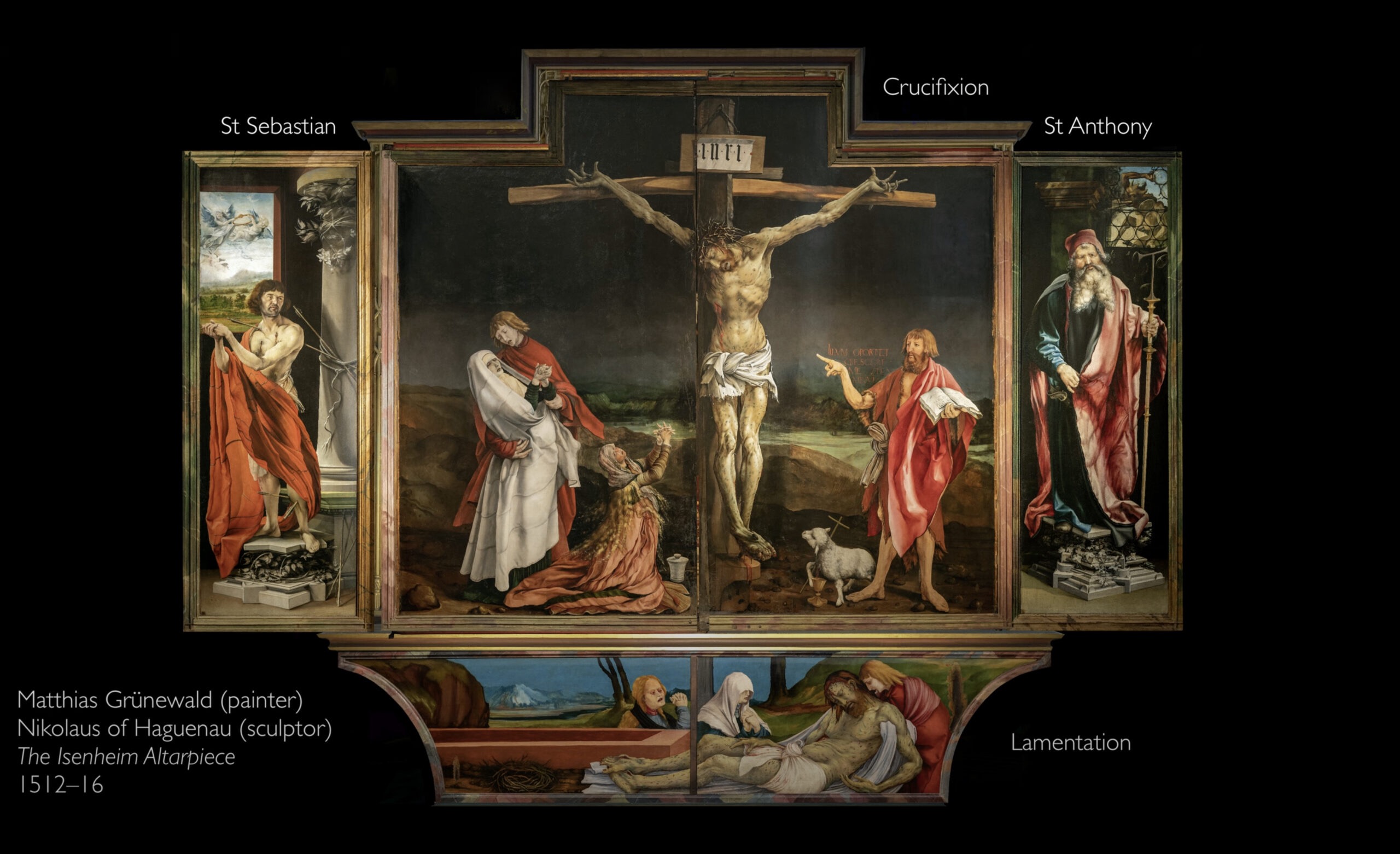
Isenheim alterpeice Reformation
Matthias Grunewald 1510-1515
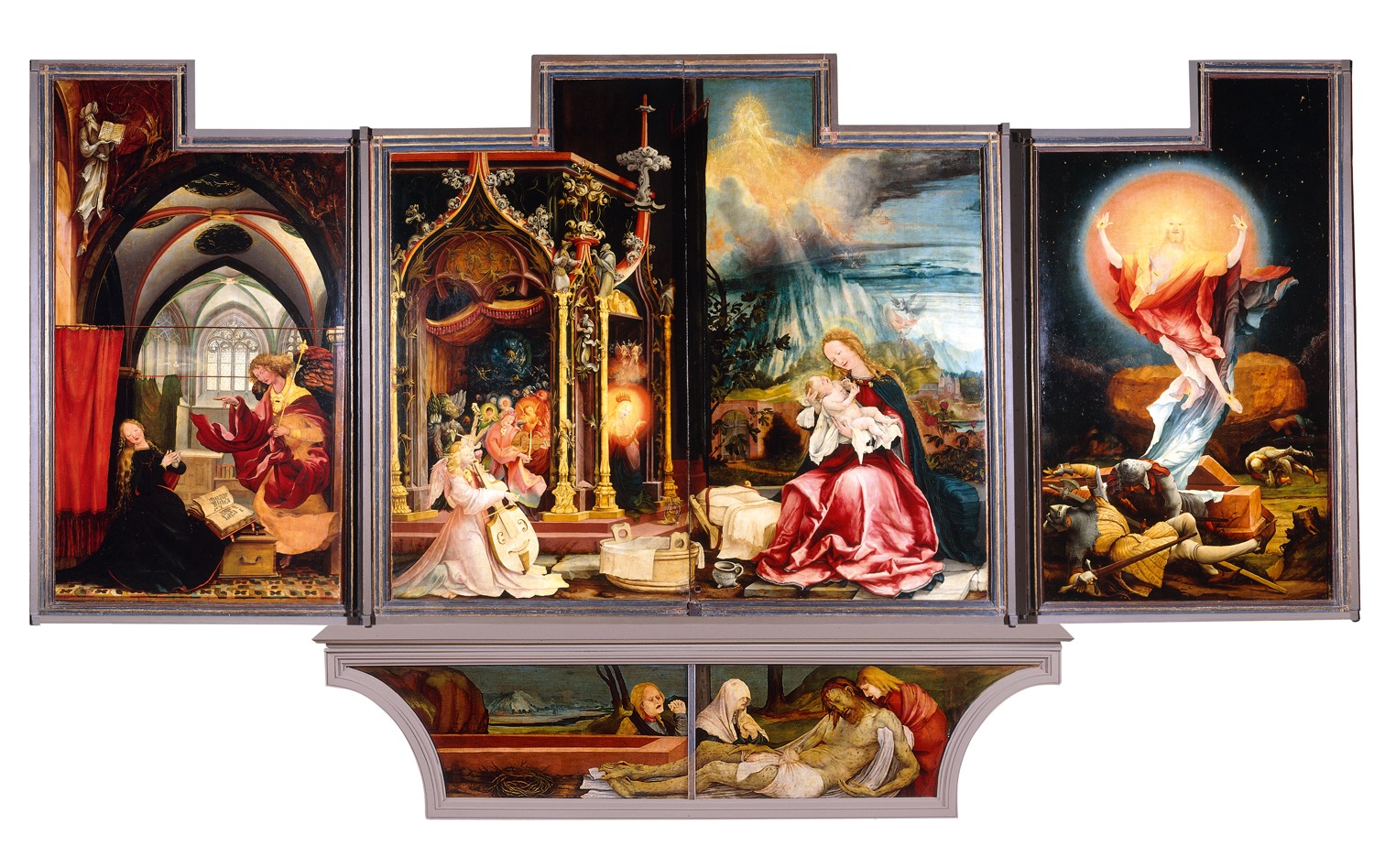
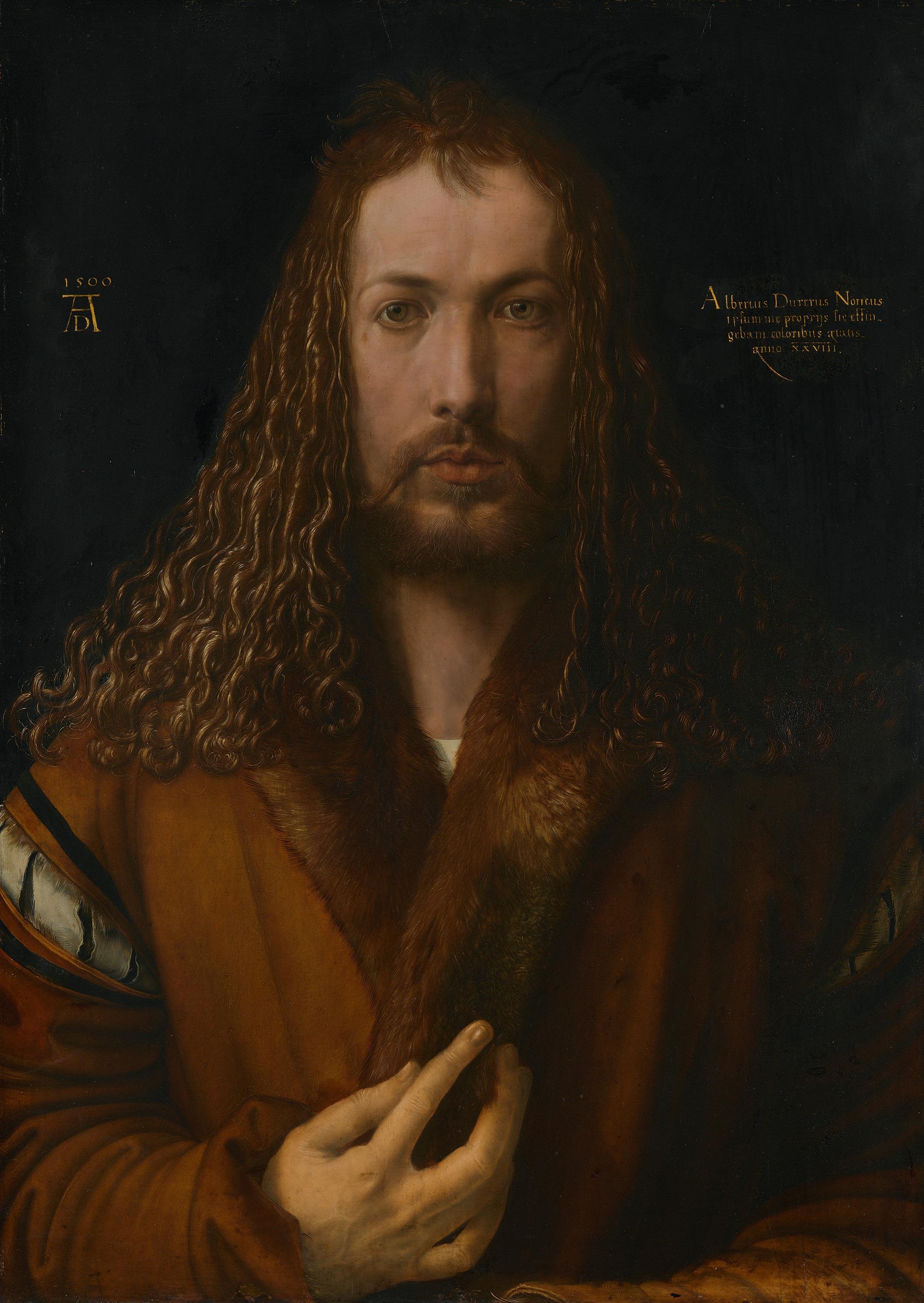
Self-portrait Reformation
Albercht Durer 1500- representing himself as a Christ-like figure
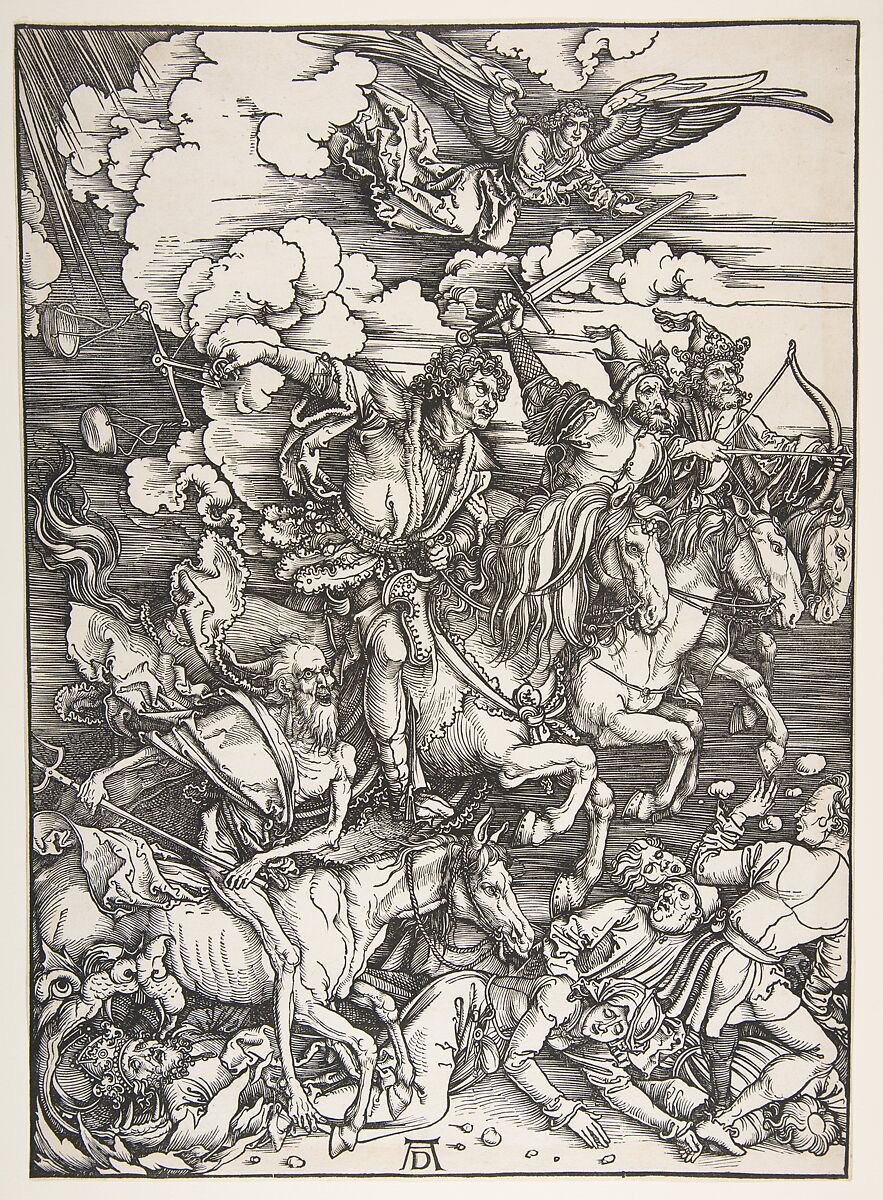
The Four Horsemen of the Apocalypse Reformation
Albercht Durer 1497- Revelation, war, conquest, death, and famine
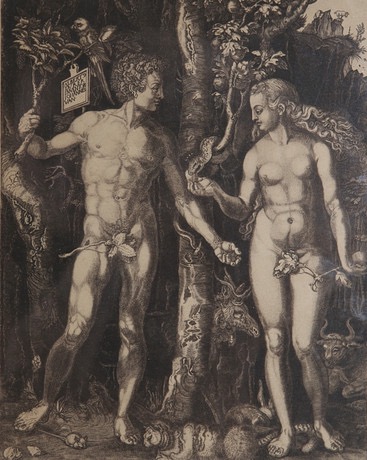
Adam and Eve Reformation
Albercht Durer 1504- morality
The four temperments
choleric, sanguine, melancholic, phlegmatic
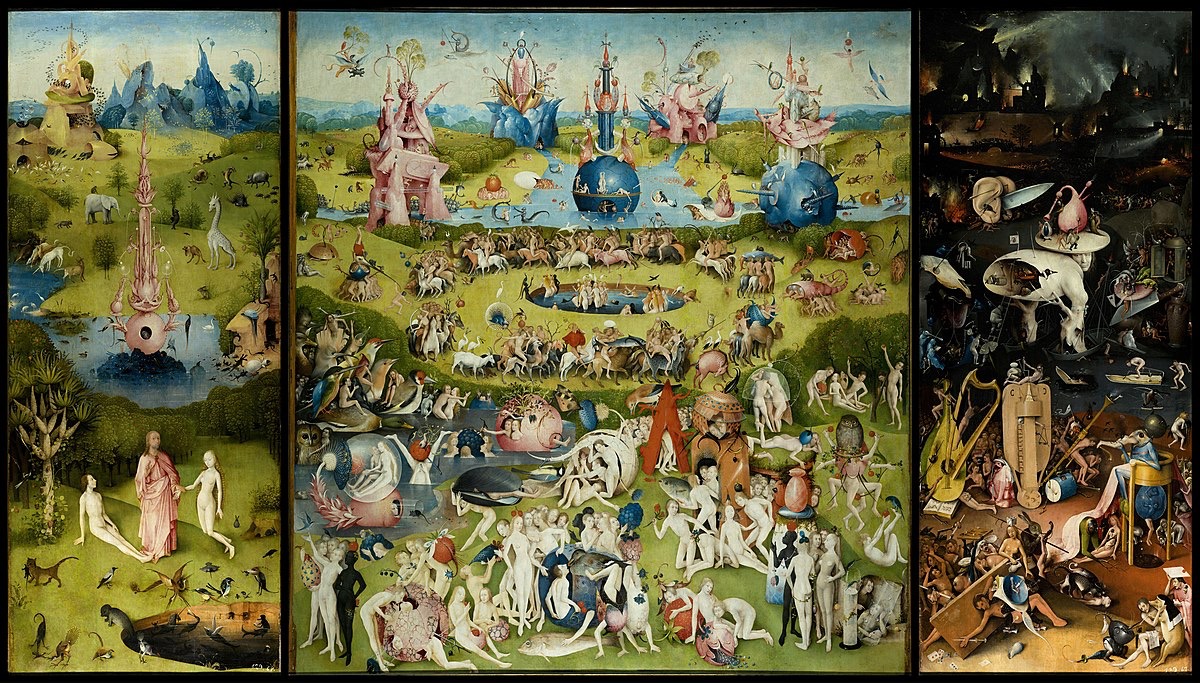
The Garden of Earthly Delights Reformation
Hieronymus Bosch- obscure and obscene, pleasure of sin and its consequences
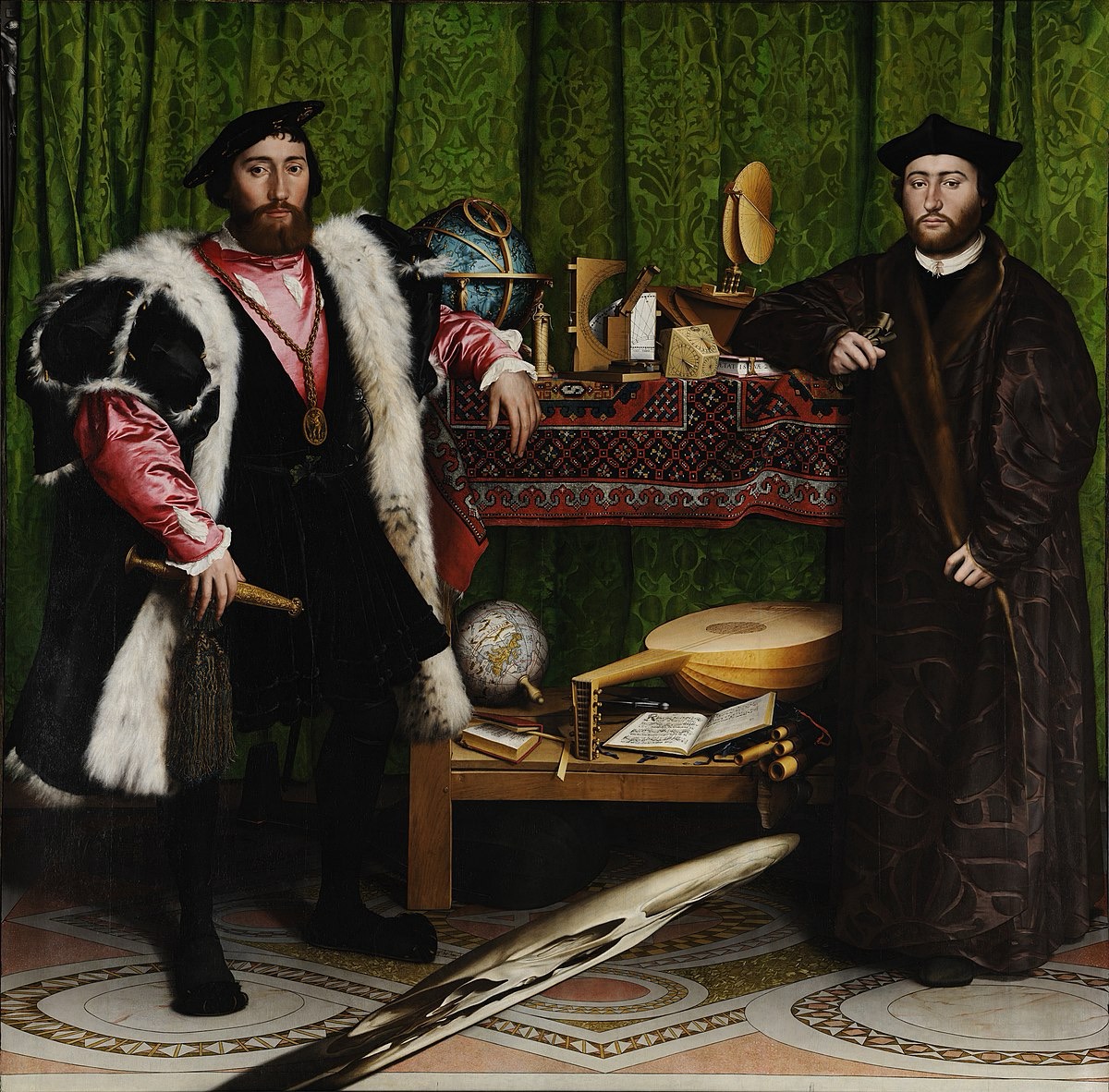
The French Ambassadors Reformation
Hans Holbien- earthly and heavenly, active and contemplative
Anamorphic
realistic art so monstrously distorted by a projective transformation is is difficult to recognize -The french Ambassadors
Momento Mori
a reminder of mortality aka skulls
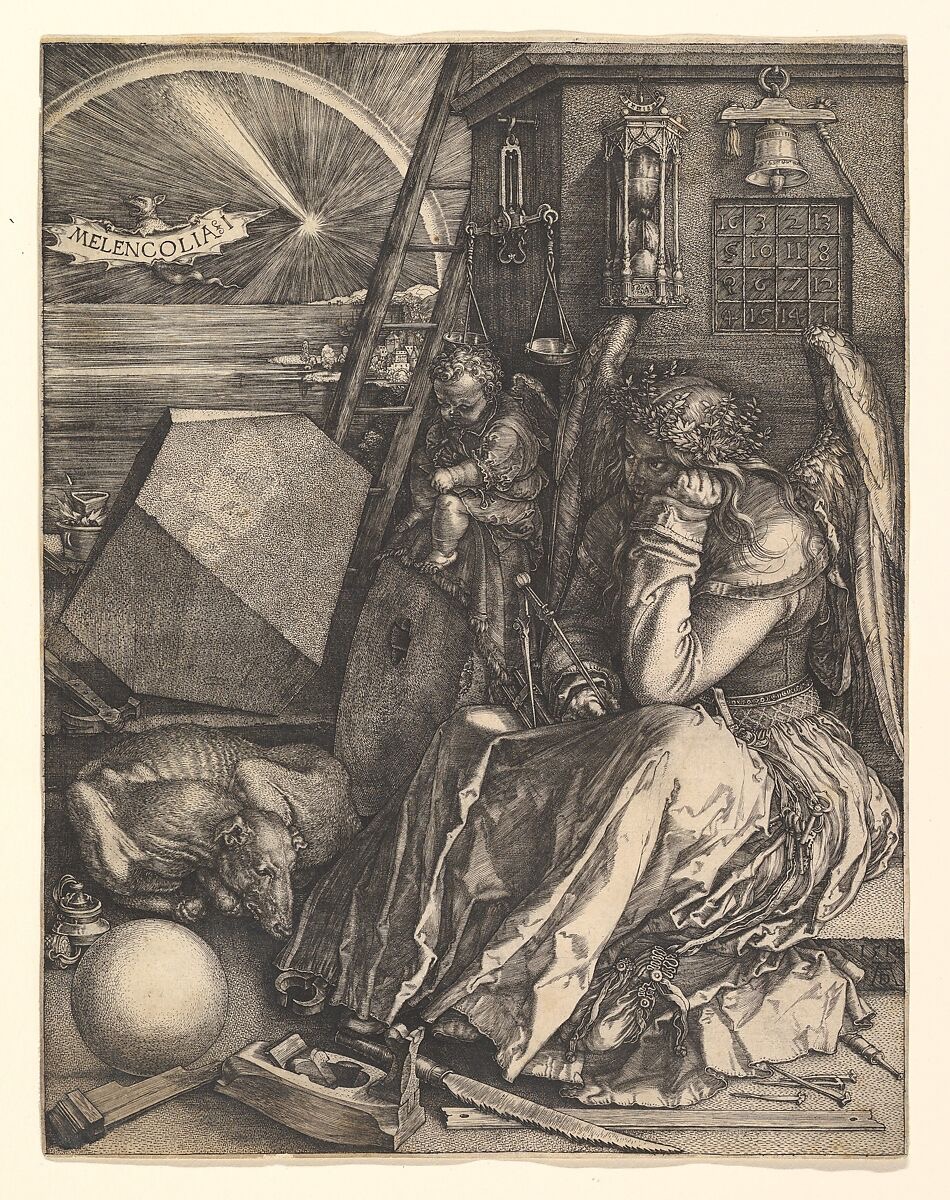
Melancholia 1 Reformation
Albrecht Dürer 1514- divine frenzy of artists
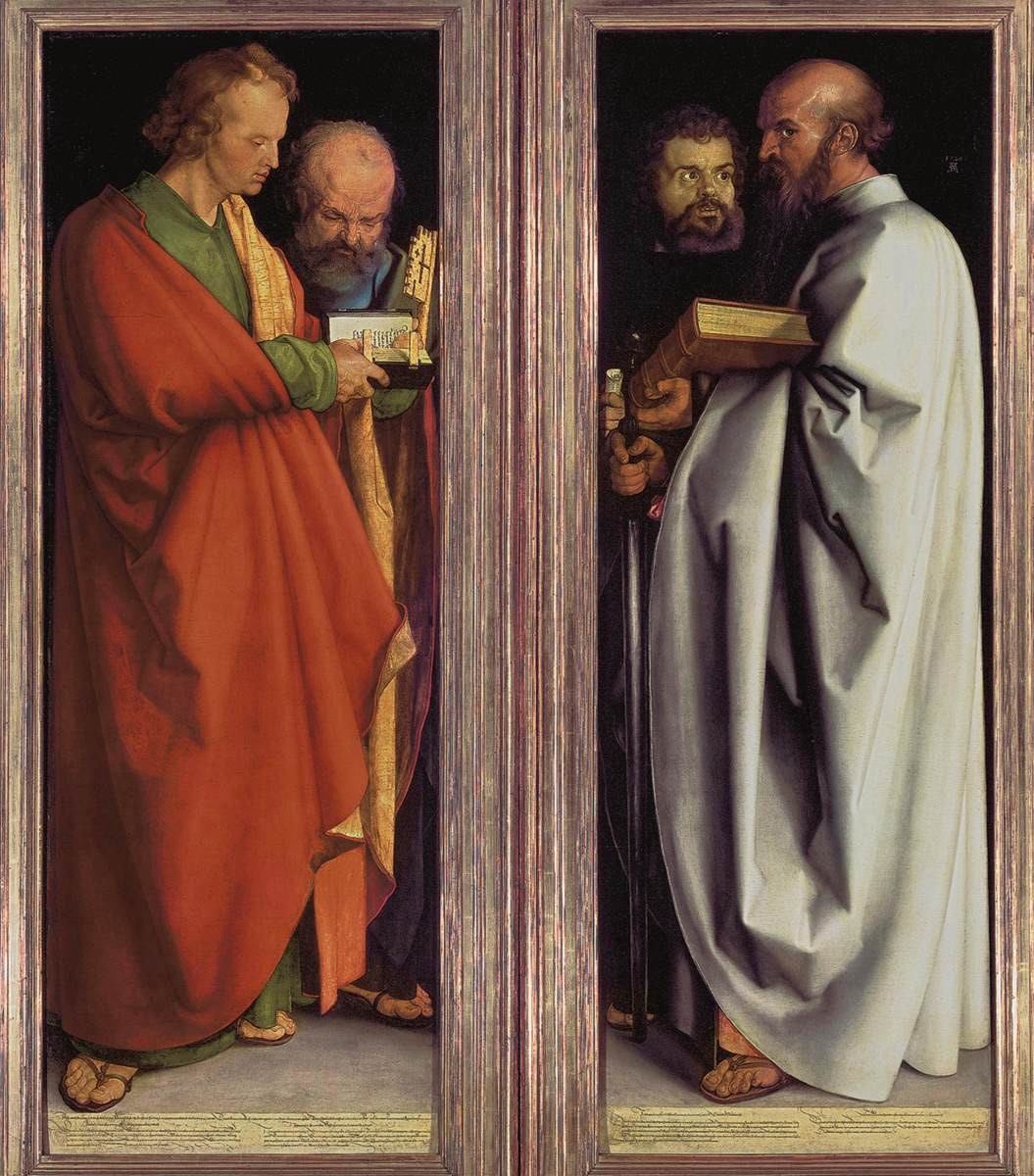
Four Apostles Reformation
Albrecht Dürer 1526- apostles as the 4 temperments
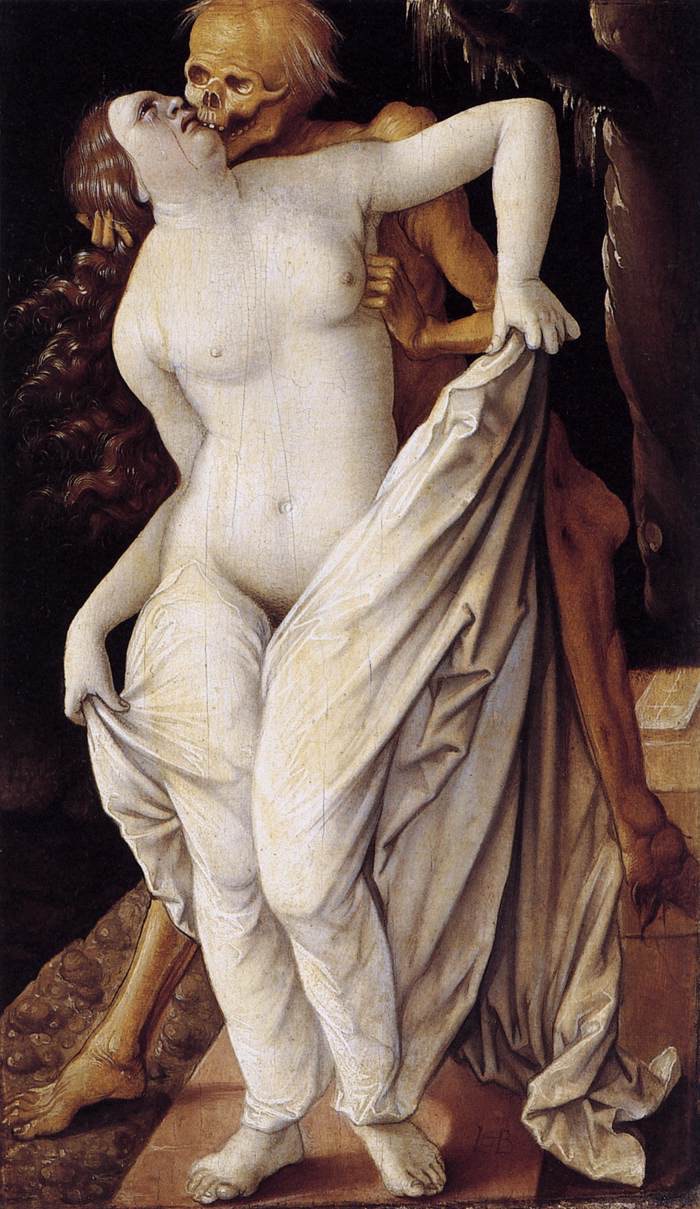
Death and the Matron Reformation
Hans Balding Grien- the sin of sensuality- moral lesson
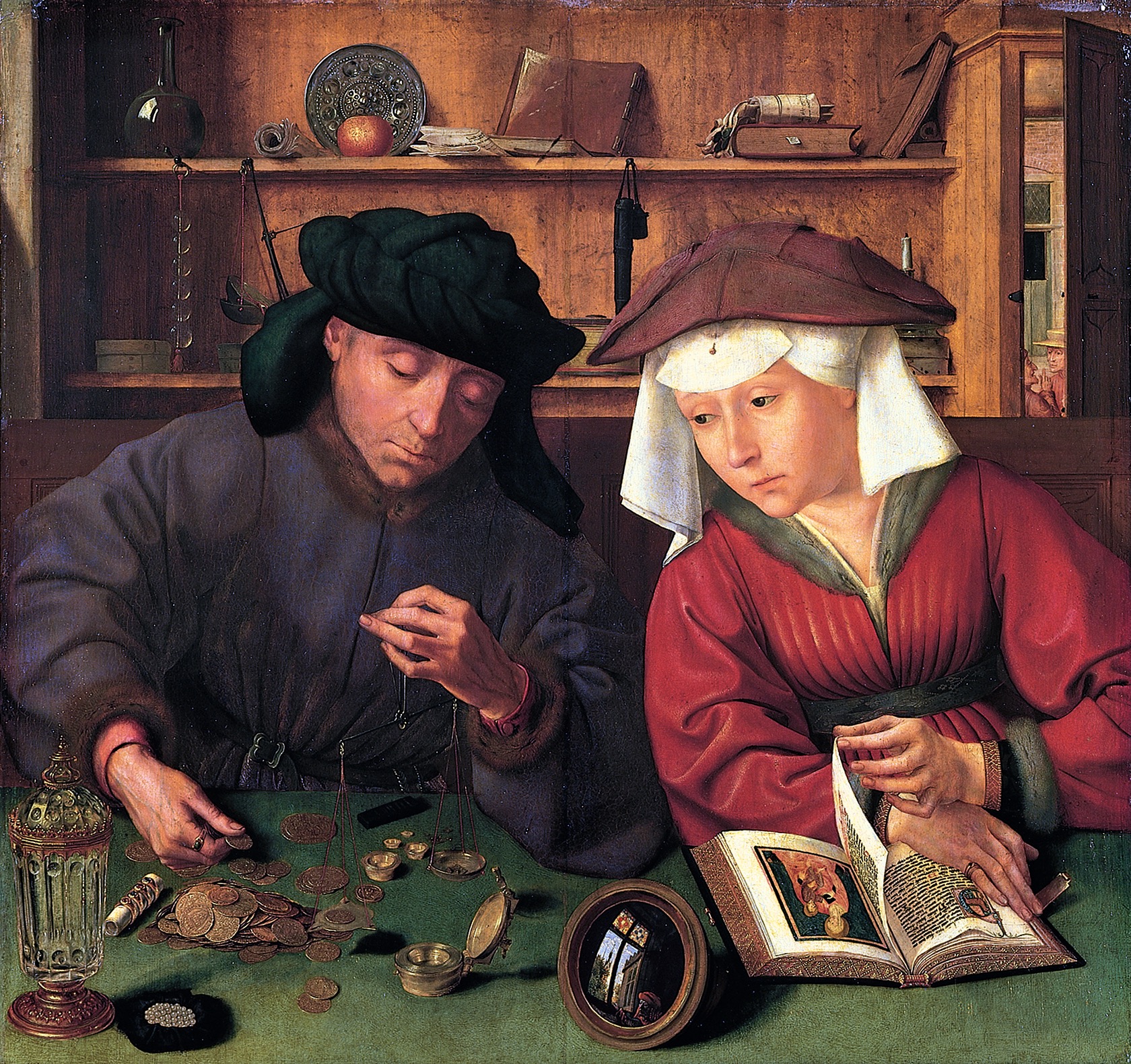
Money Changer and his Wife Reformation
Quetin Massy- distraction from spiritual things by earthly items
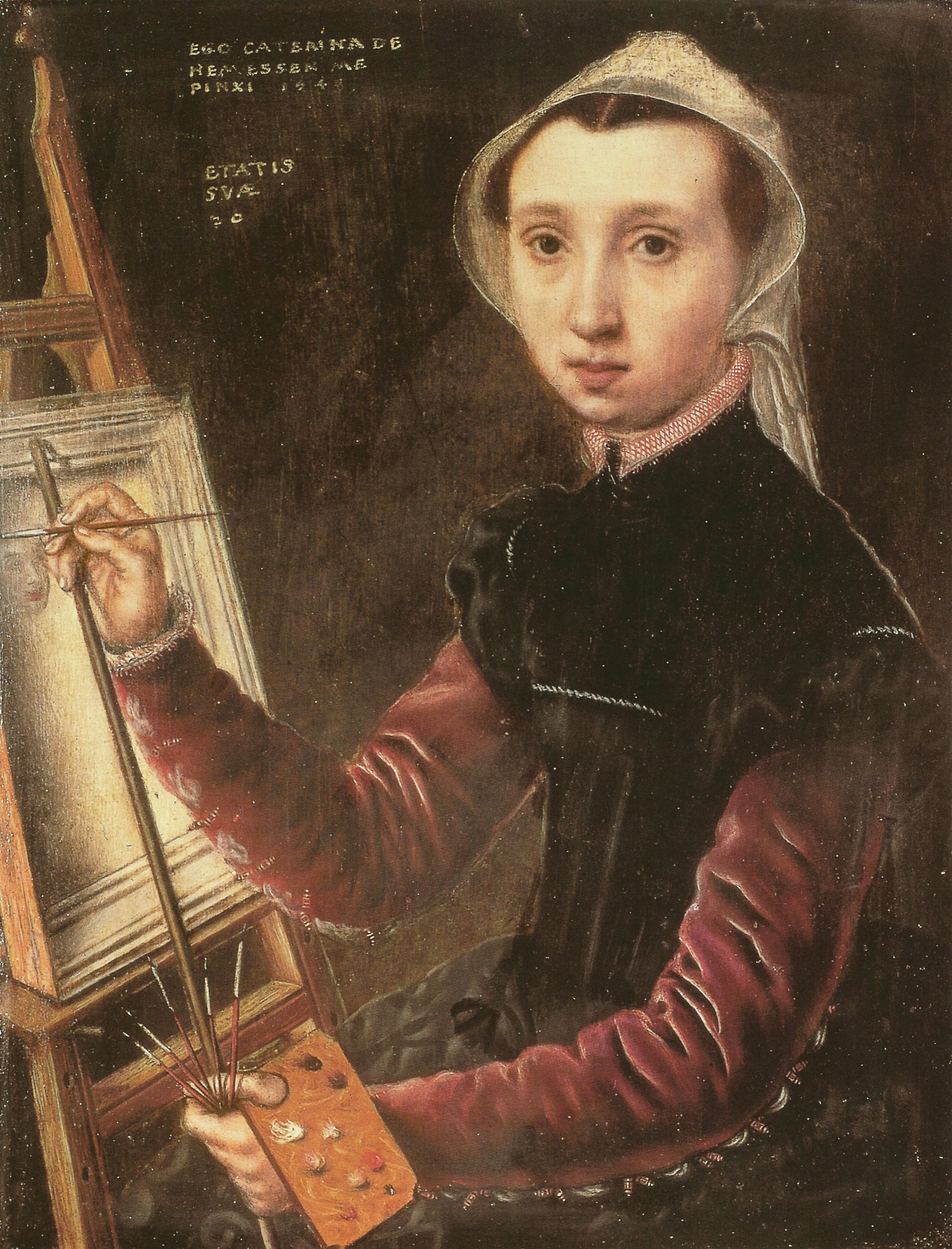
Self Portrait Reformation
Caterima Van Hemesseu
Baroque movement
religious wars, scientific advances, rise of middle class, still lifes, and more religious scenes
Baroque Art Characteristics
usually large scale, dramatic/dynamic movement, use of space , intense emotions, dramatic lighting, brings viewer into the event, interior life, representation of social class, light
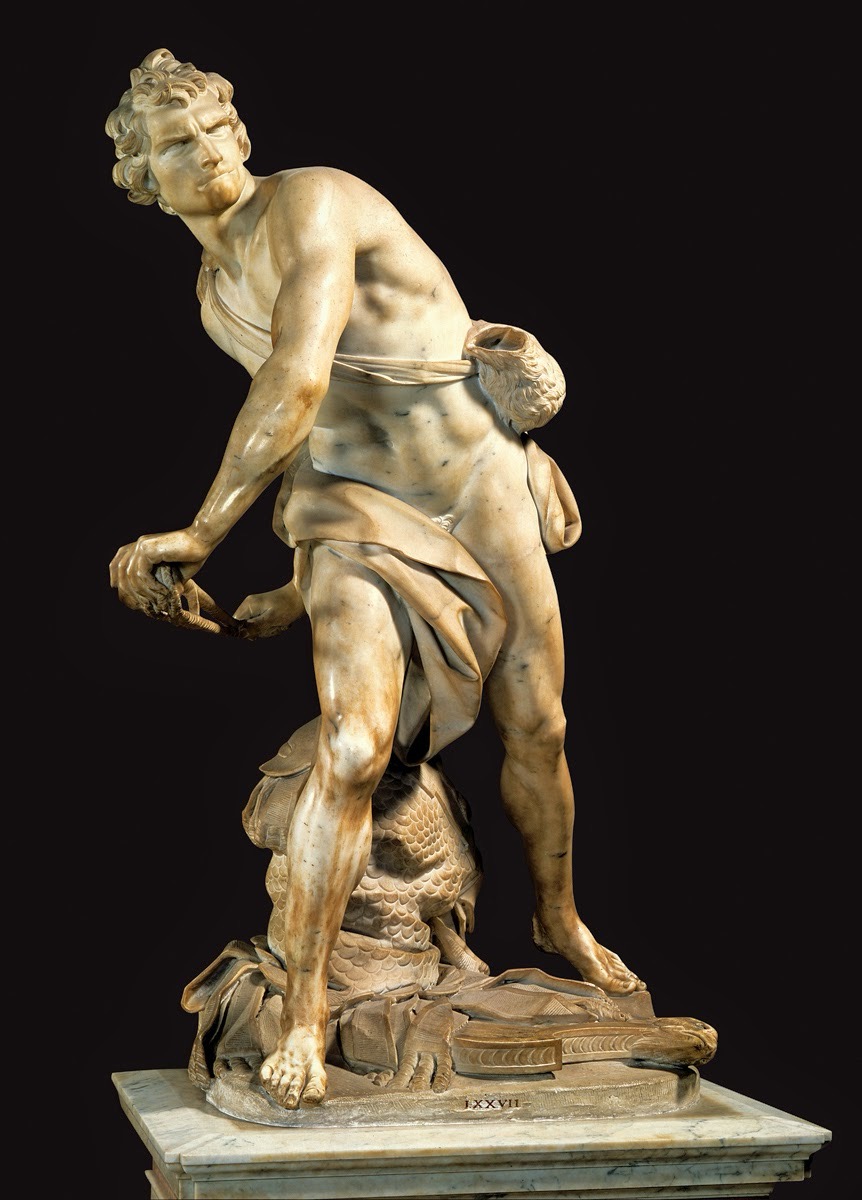
David Baroque
Bernini 1623- mid-action, slaying Goliath
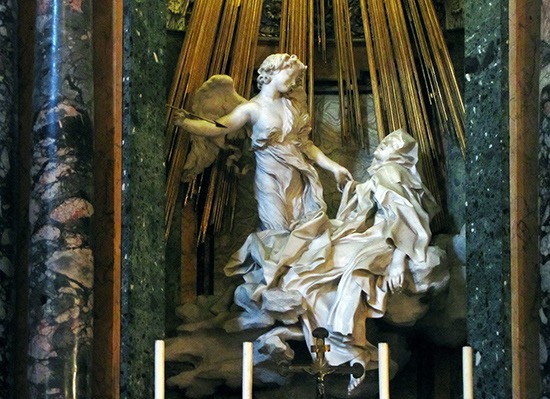
St. Teresa in Ecstasy Baroque
Bernini 1645- nun and mystic, religious trances- bound to earthly body
counter-reformation
catholic church will embrace art as a way to draw people back into the church
genre painting
scenes from everyday life
tenebrism
the use of strong chiascuro in illuminated areas to create drama
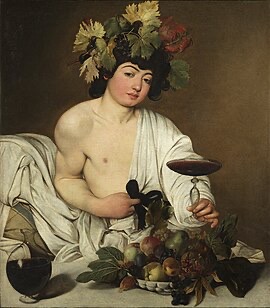
Bacchus Baroque
Caravaggio-1595 the result of pursuing temporary pleasure
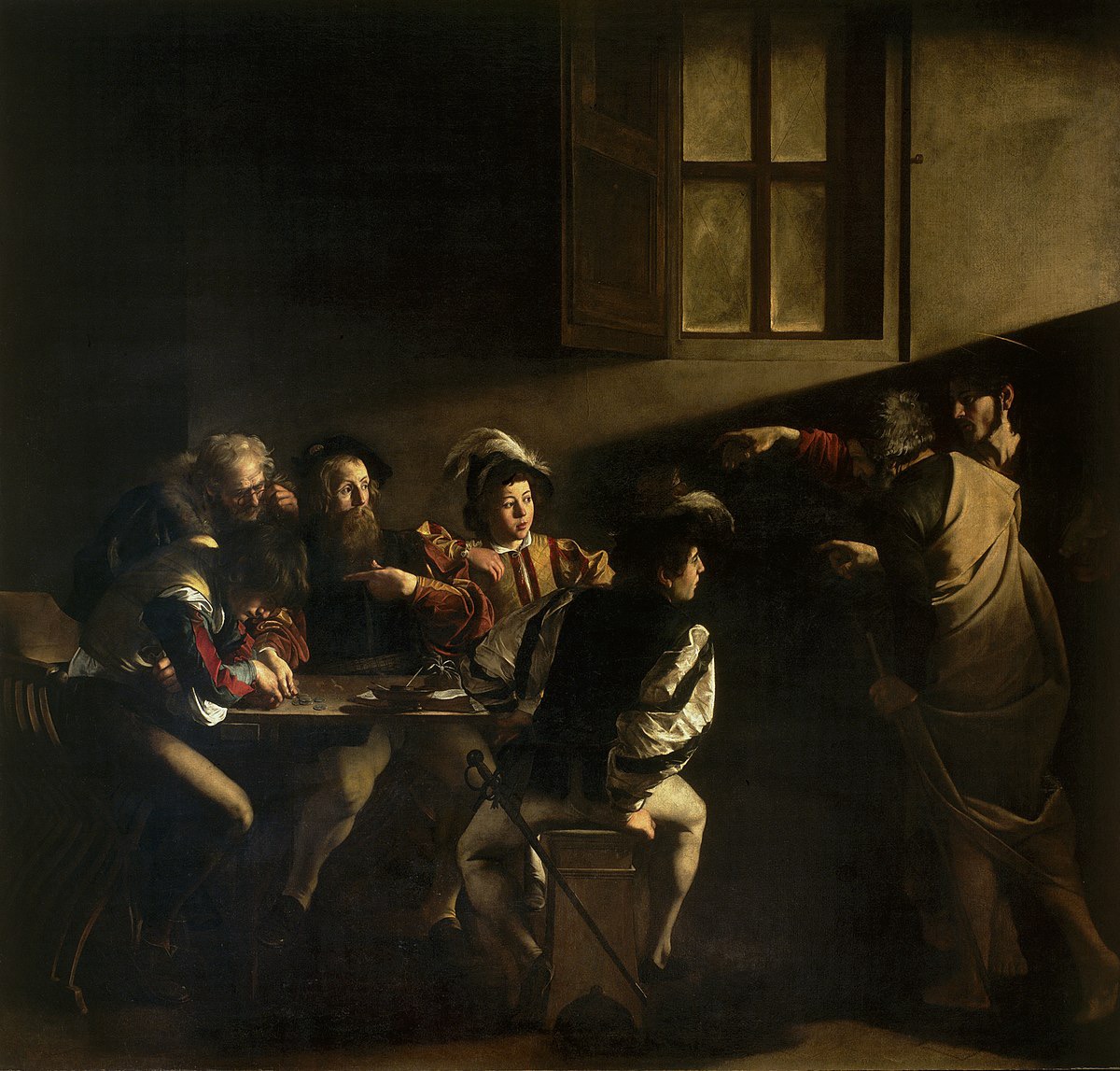
The Calling of Saint Matthew Baroque
Caravaggio 1600- Jesus at the table with sinners-dirty environment
Conversion of St Paul Baroque
Caravaggio 1601- Paul’s vision
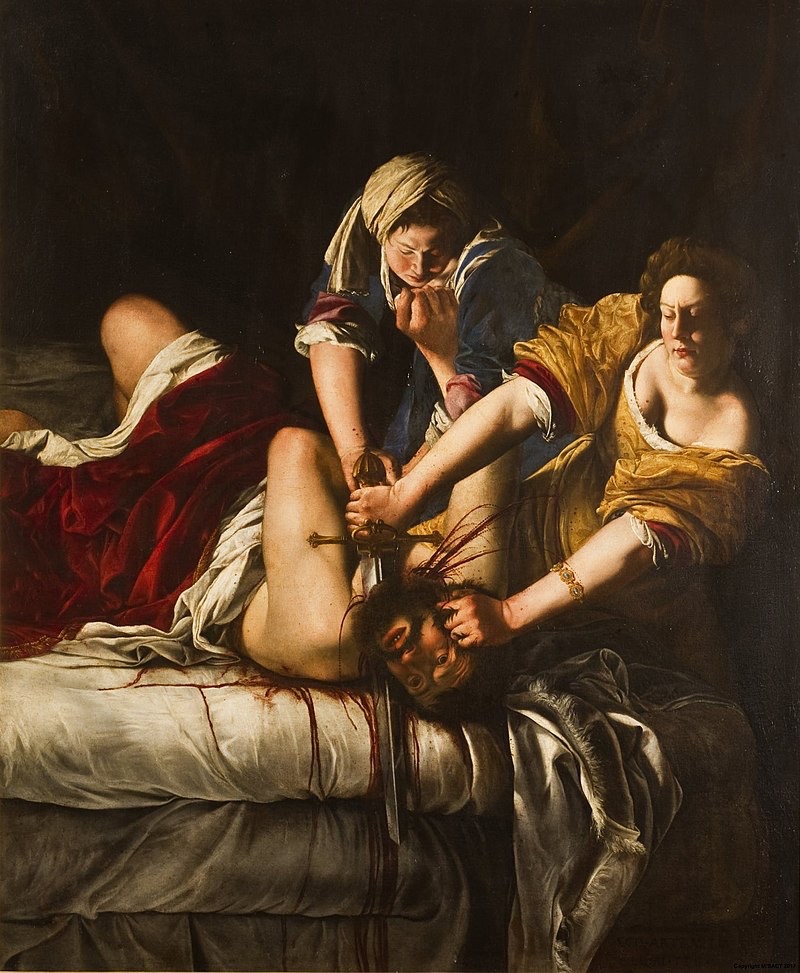
Judith Beheading Holofernes Baroque
Artemisia Gentileschi- depicted poweful women due to her past difficulties with men
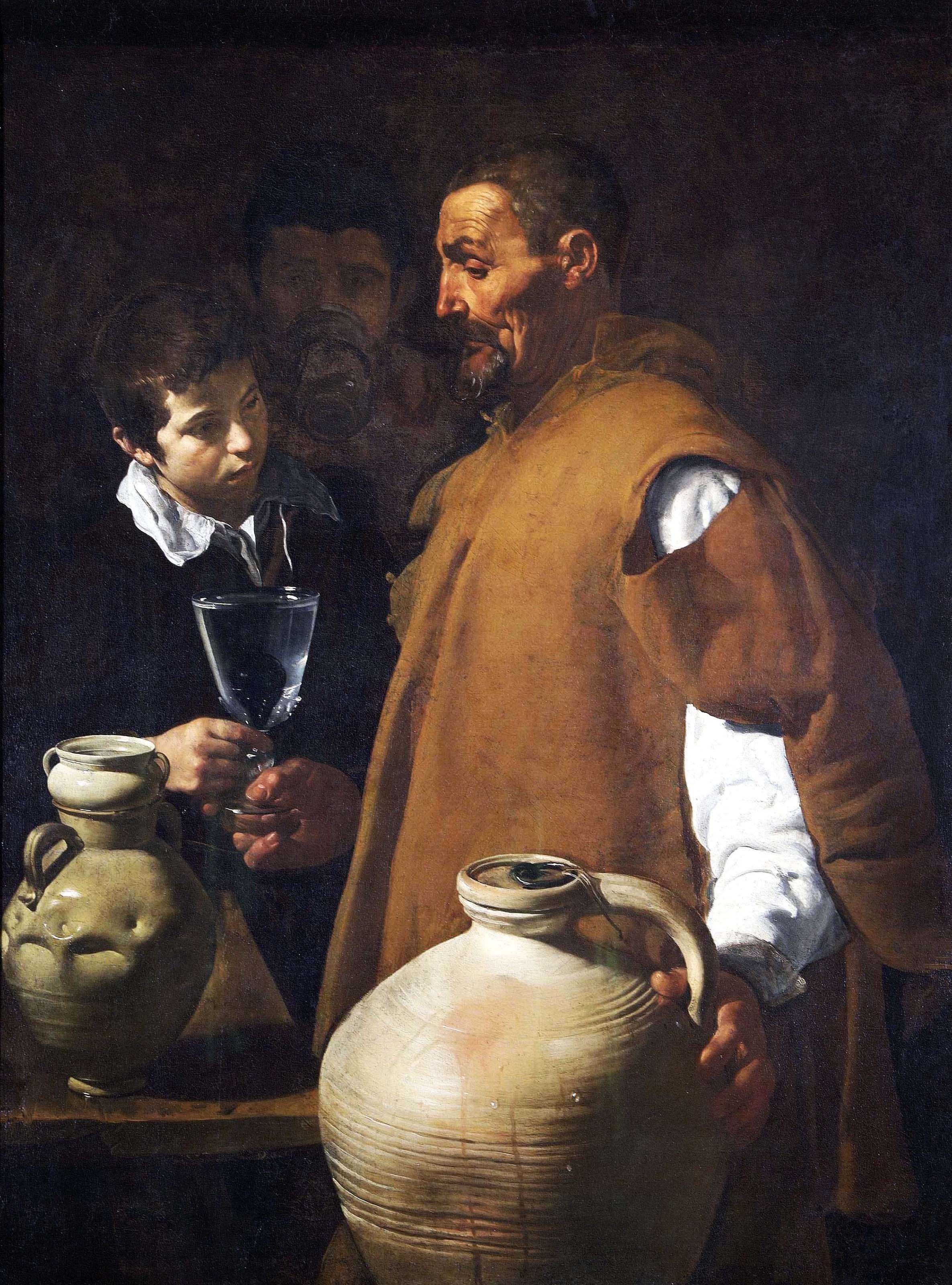
Water Carrier of Seville Baroque
Diego Velazquez-shows three stages of life - young, middle and old, lower social class
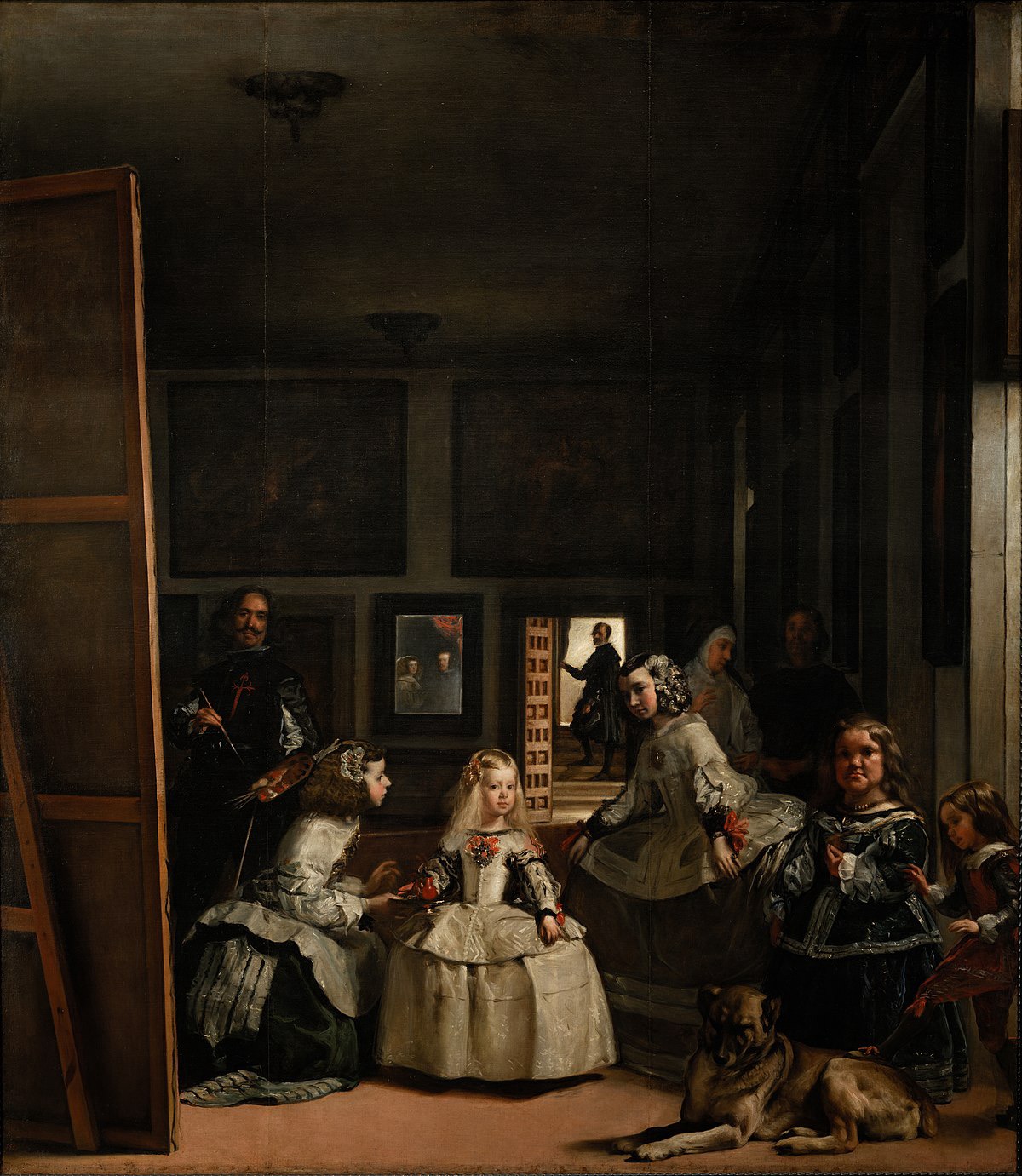
Las Meninas Baroque
Diego Velazquez- shows wealth and princess Margaret with her companions
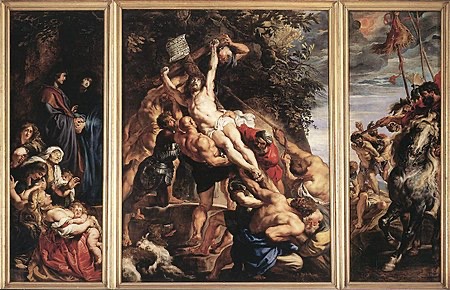
The Raising of the Cross Baroque
Peter Paul Rubens- triptych, action, strong diagonal composistion
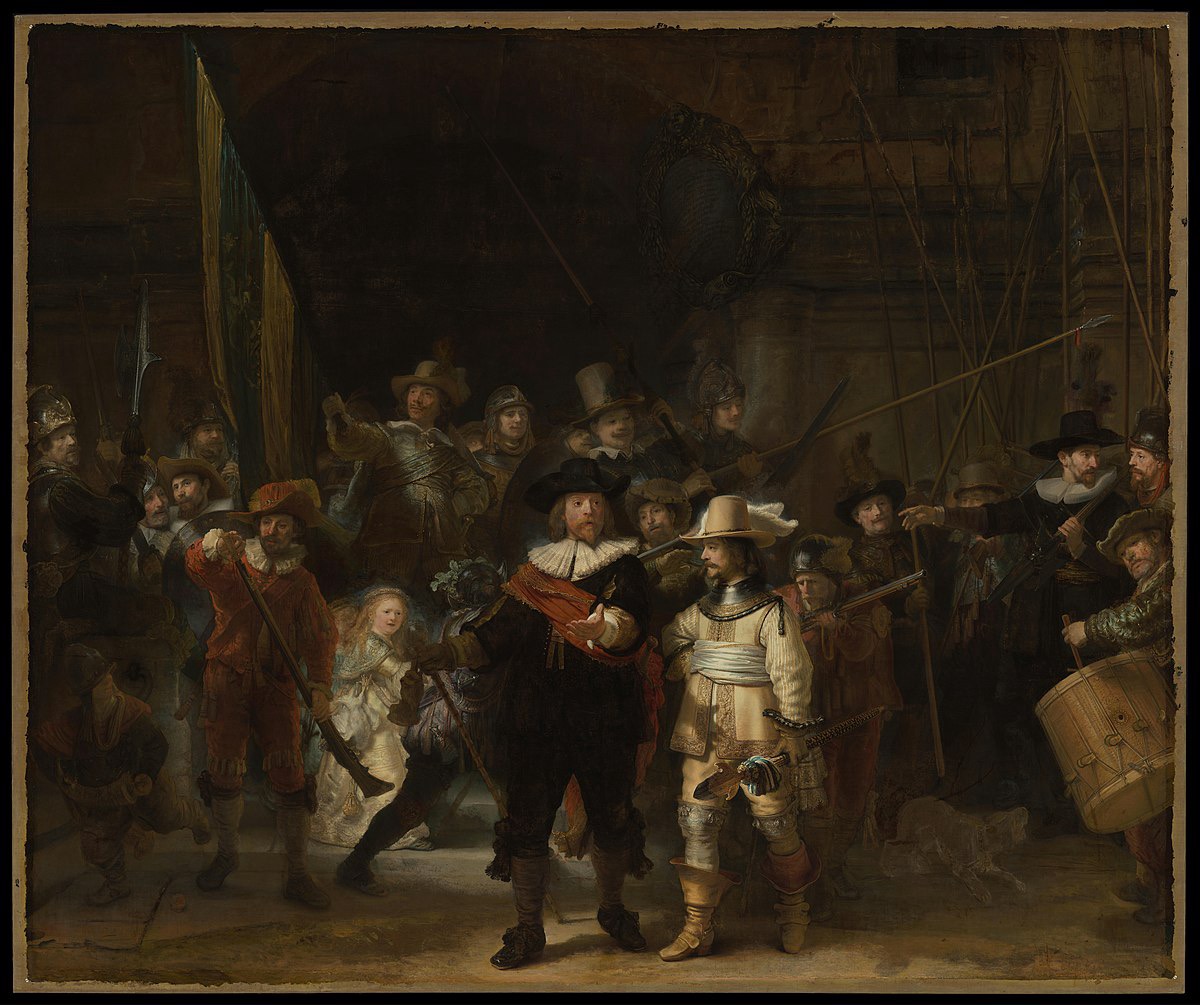
The Night Watch Baroque
Rembrandt-1642- depicts a civic group doing manly things, those with more money shown clearer
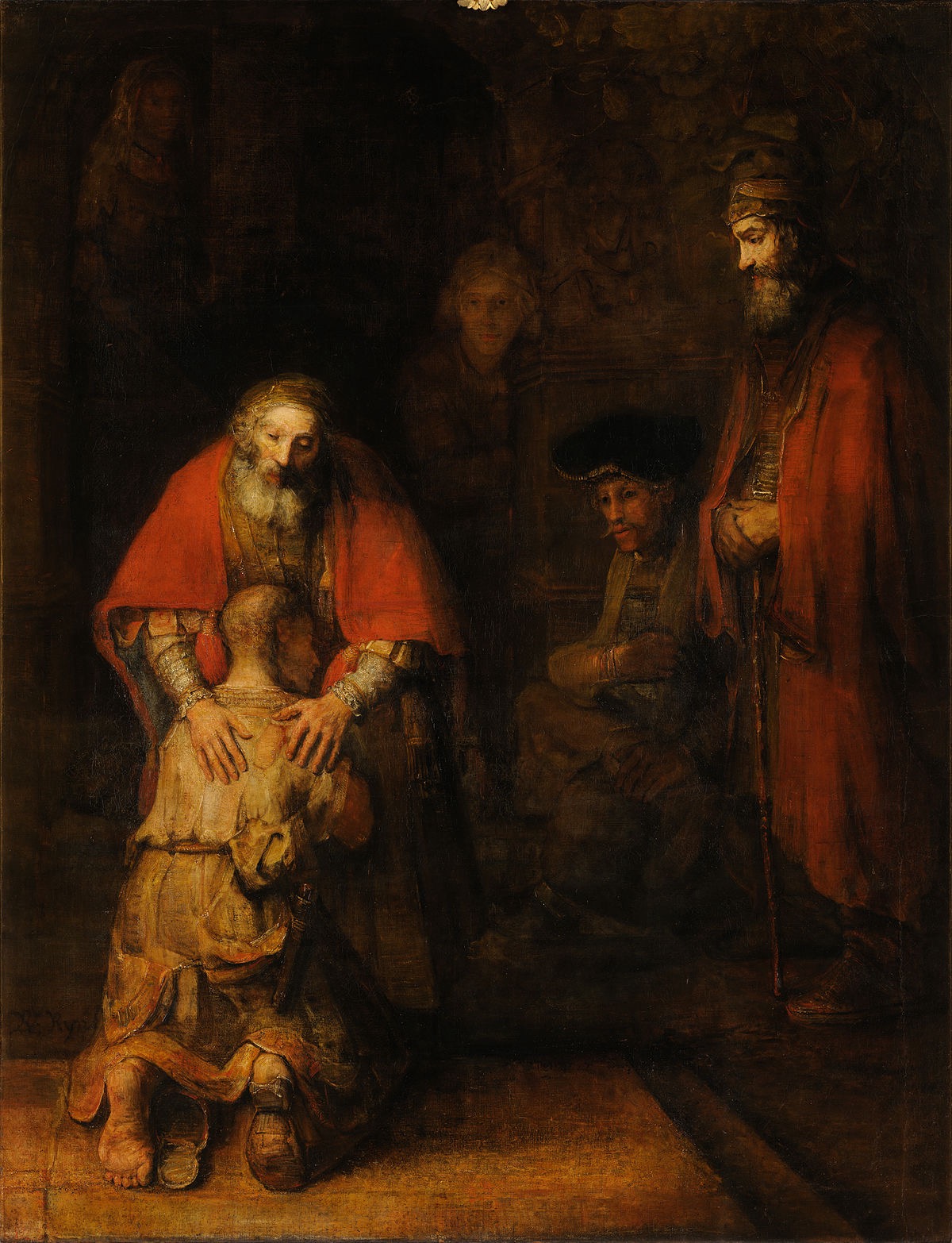
The Return of the Prodigal Son Baroque
Rembrandt-1668- moment of forgiveness, the embrace
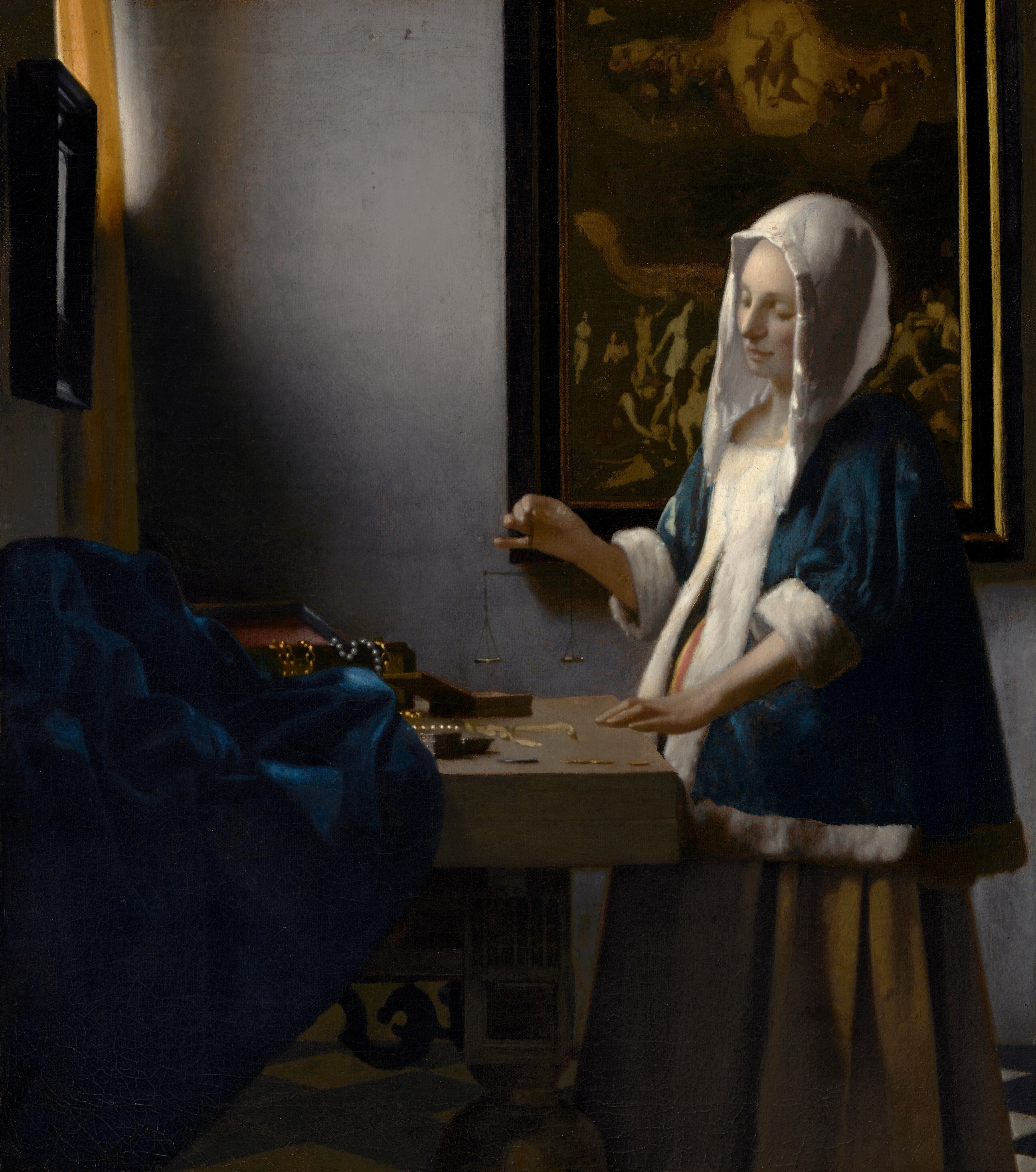
Woman Holding a Balance Baroque
Johannes Vermeer- weighing the importance of earthly and spiritual focus, light= holy spirit
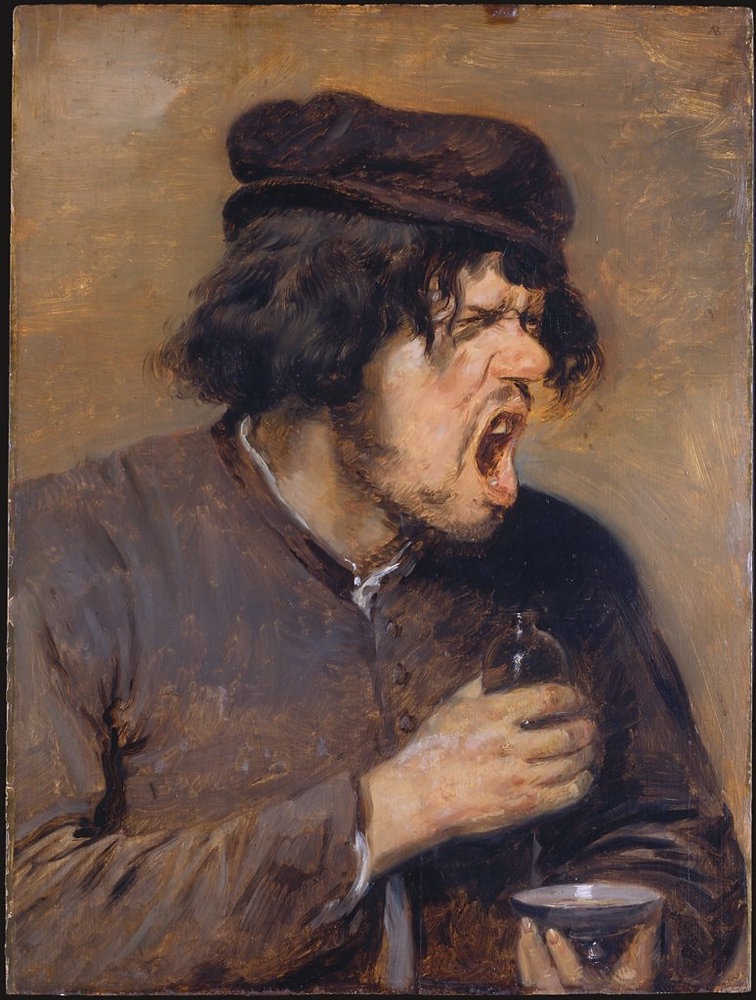
The Bitter Drink Baroque
Adriaen Brouwer- depicting strong emotion and lower class
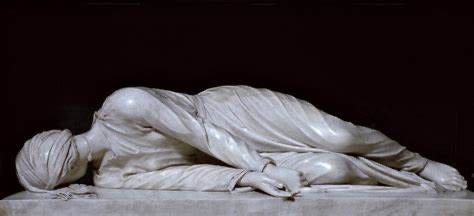
St Cecilia Baroque
Stefano Maderno- sarcophogus, martyr died by neck wound, continued to preach three days after she was killed.
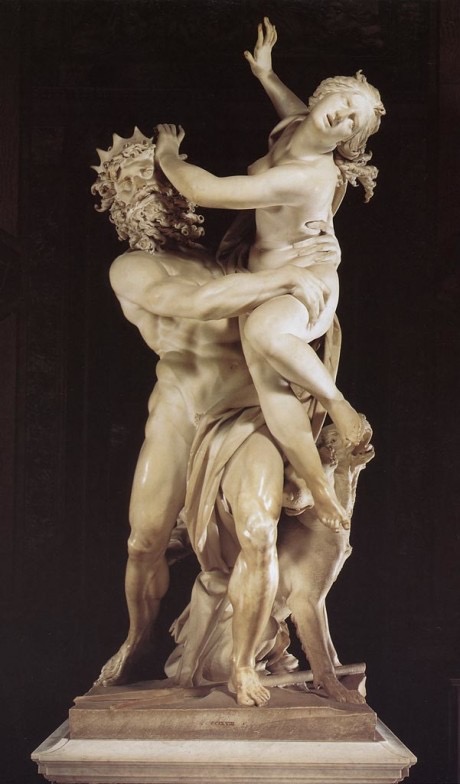
The Abduction of Persephone Baroque
Bernini- dramatic struggle
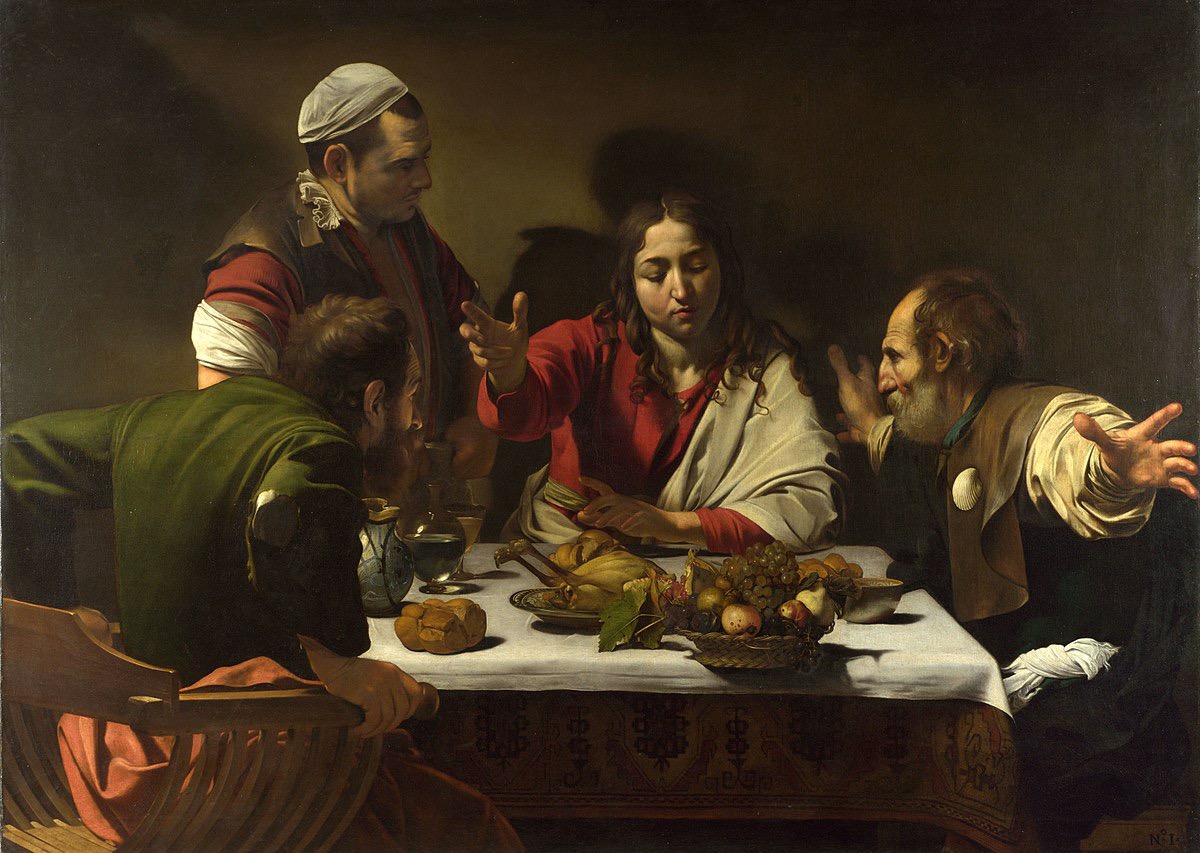
Supper at Emmaus Baroque
Caravaggio 1601- didnt recognize Christ- viewer at the table
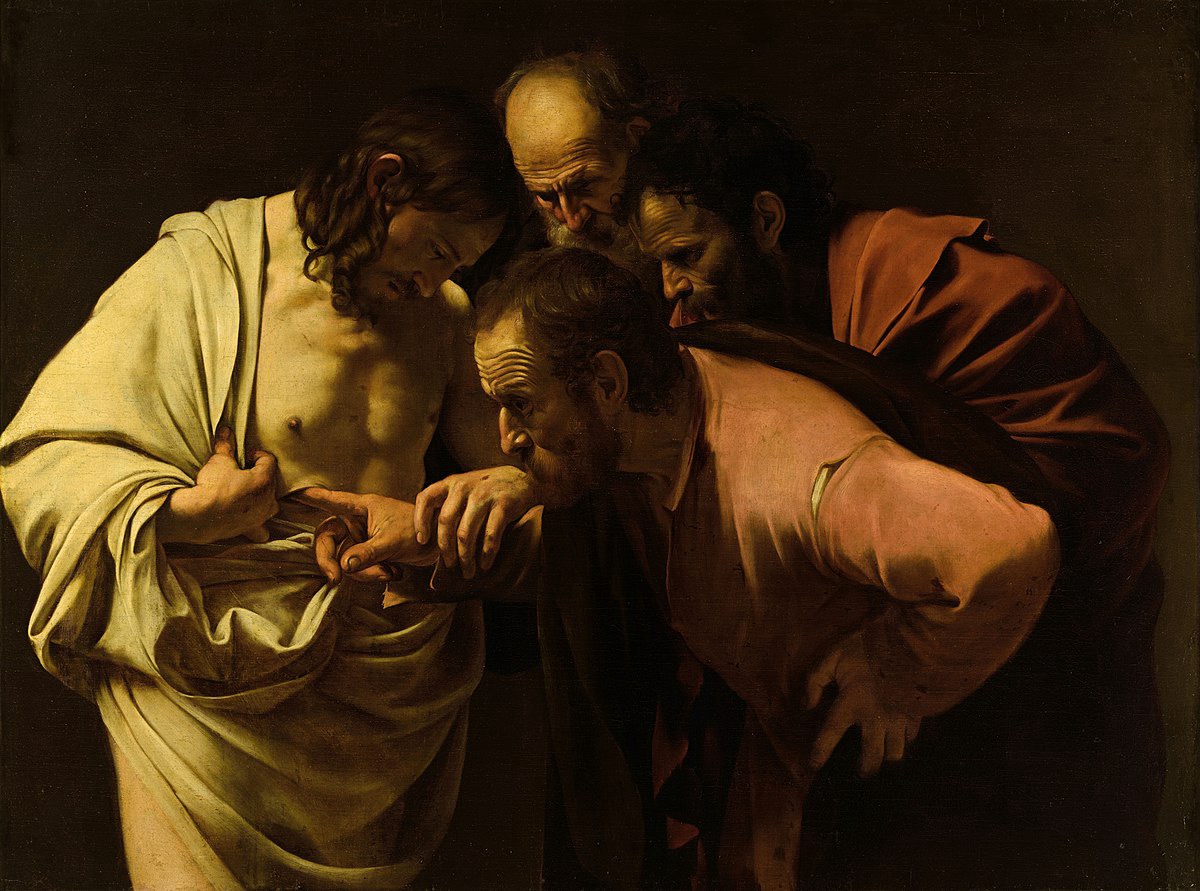
The Incredulity of St Thomas Baroque
Caravaggio- 1602- figures shown as regular people, viewer placed in the group
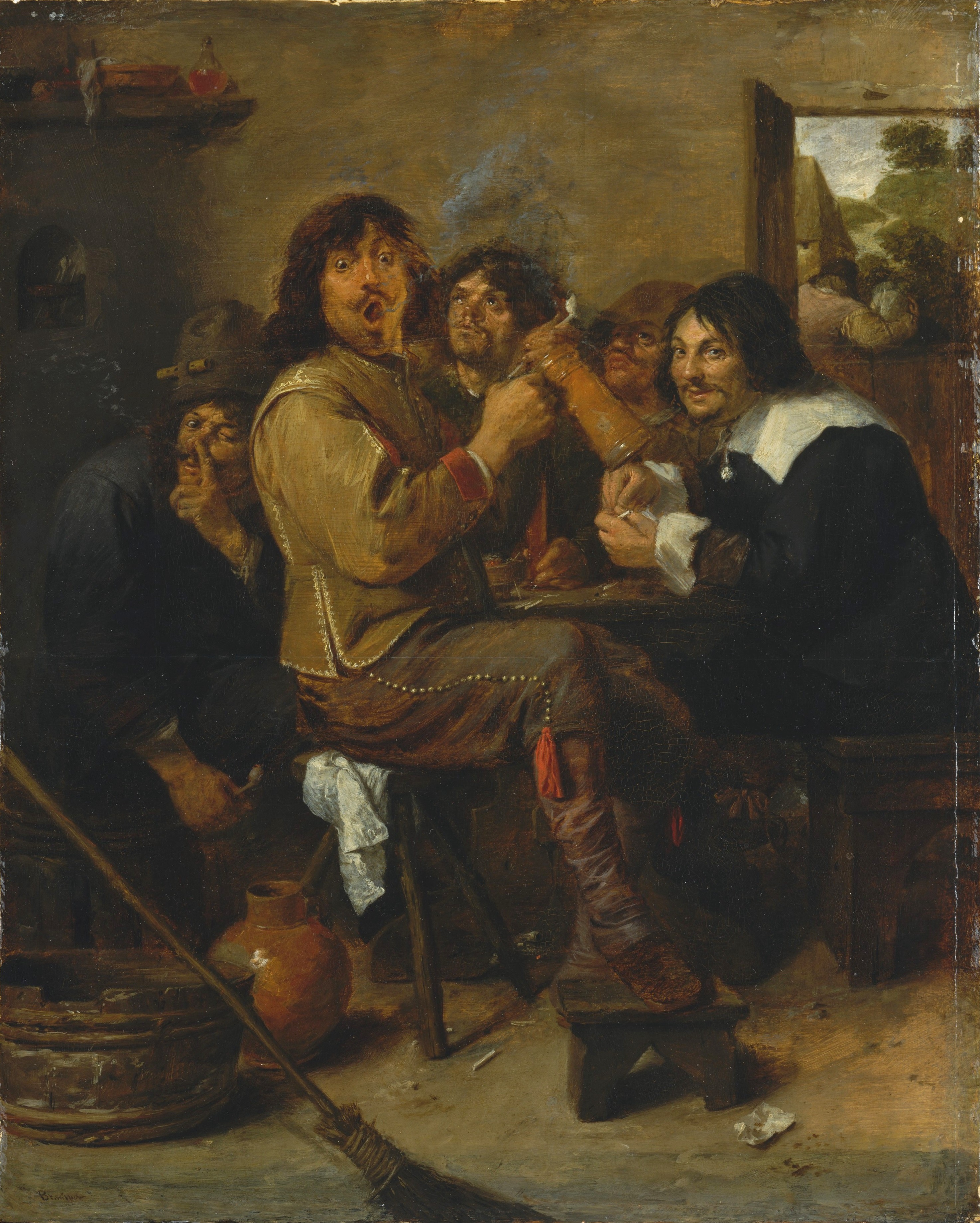
The Smokers Baroque
Adriean Brouwer- crude and shocking subject matter
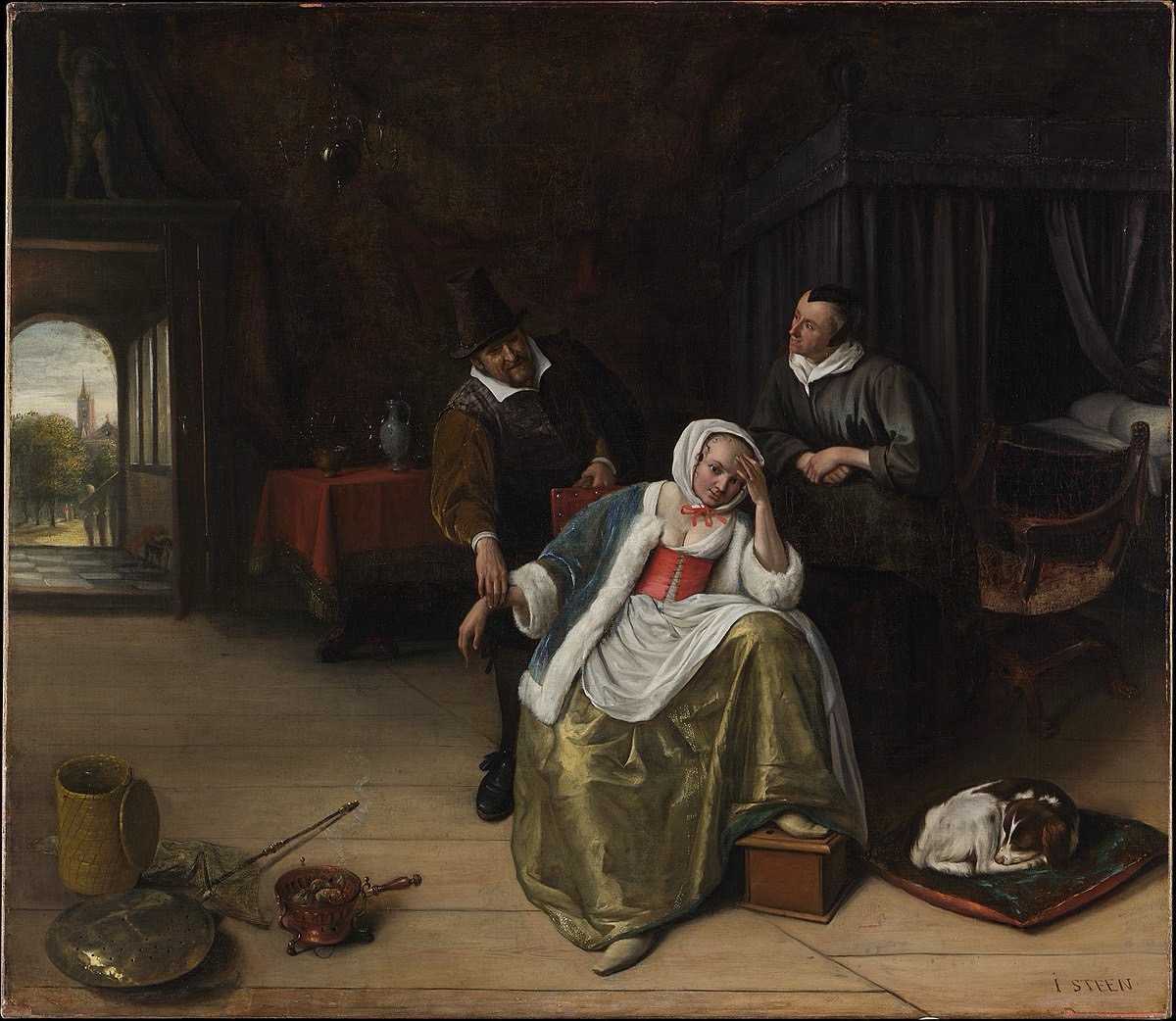
The Lovesick Maiden Baroque
Jan Steen- all about being jilted by a lover, sad and hysteria- dog, cupid, jar-old pregnancy test
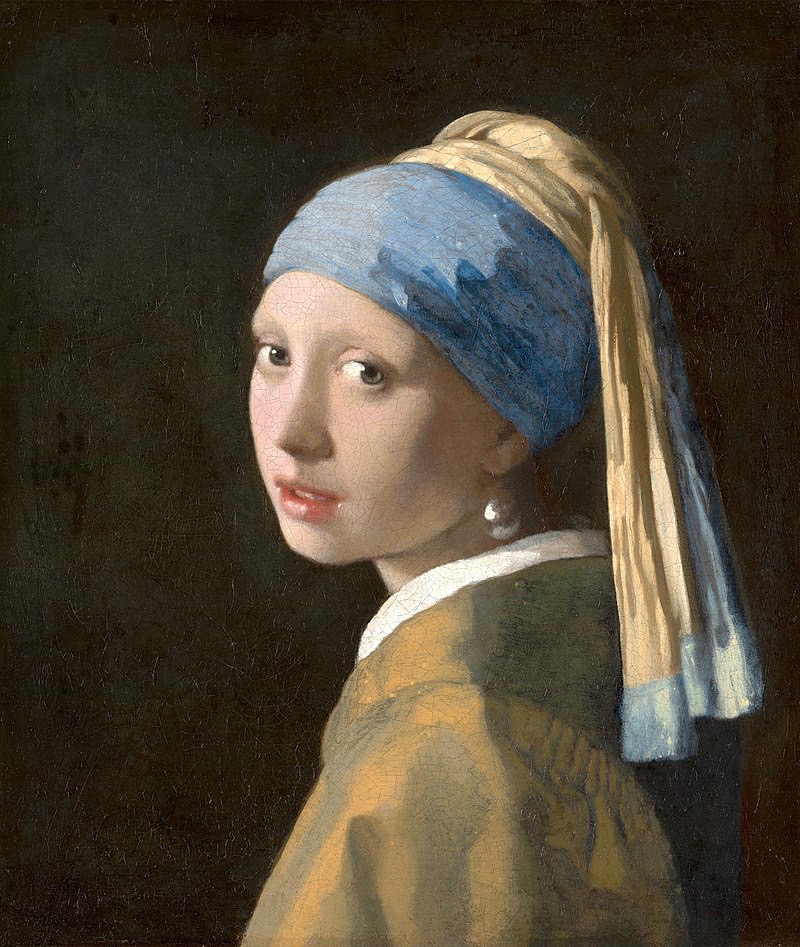
Girl with the Pearl Earring Baroque
Jan Vermeer- his lover? pearl=chasity
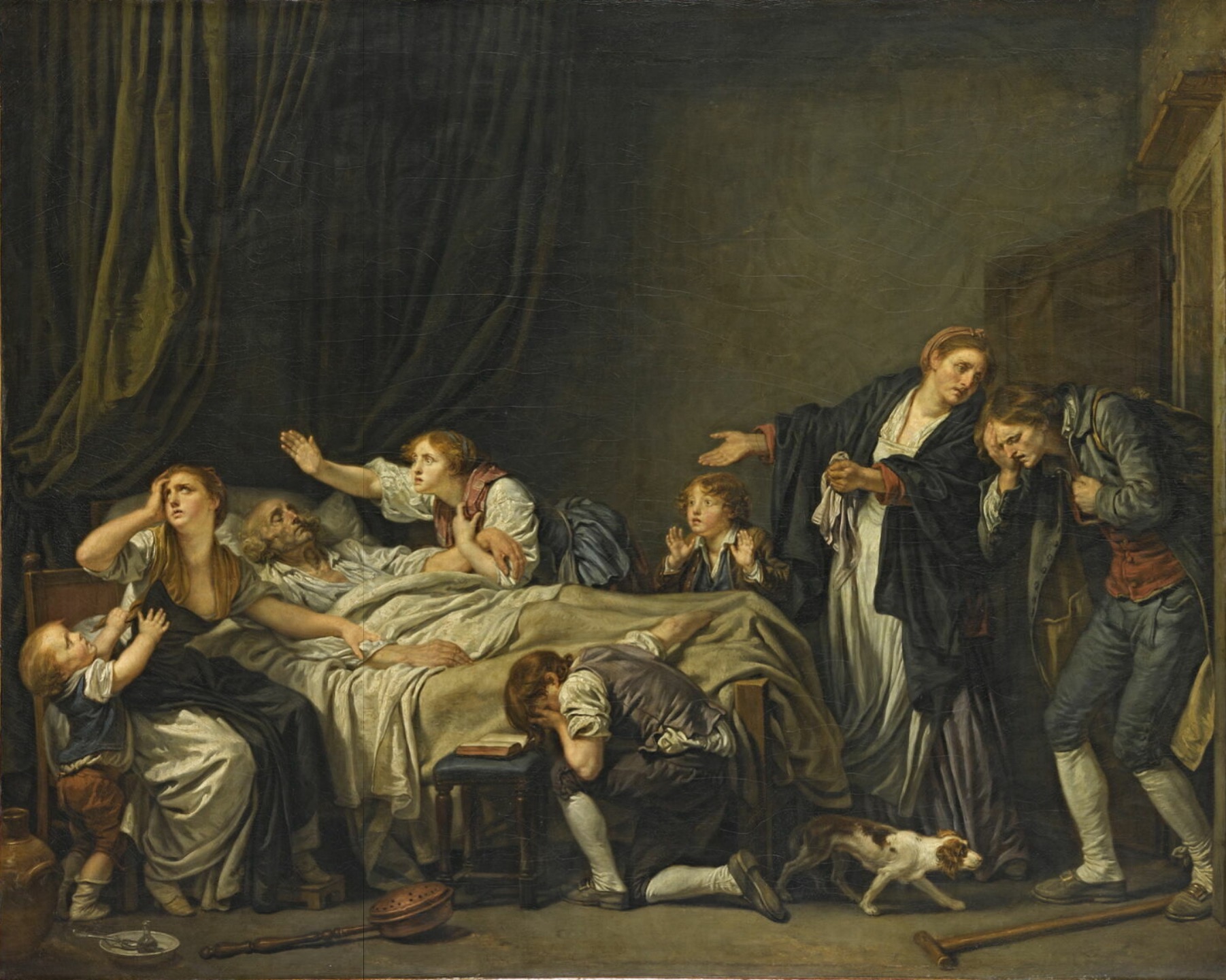
The Punished Son Baroque
Jean-Baptiste Grease- retelling of the prodigal son- son brings death to the father
18th Century Art
American and French Revolution, age of enlightenment, reliance on science rather than religion, all men should have equal rights- government should protect these rights, industrial revolution, neoclassicism, romanticism, and rococo
Age of enlightenment/age of reason
using science and reasoning rather than political beliefs
Industrial Revolution
economic and social transformation; factory work
neoclassicism
revival of greek, roman, and renaissance ideals
romanticism
an exploration of emotion, feelings, and moods of all kinds, the power of nature and passion, rejected neoclassicism
rococo
ornamentation and pearl, pastel colors, small canvases, playful, sexual, myths and putti
Fete Galante
elegant outdoor entertainment
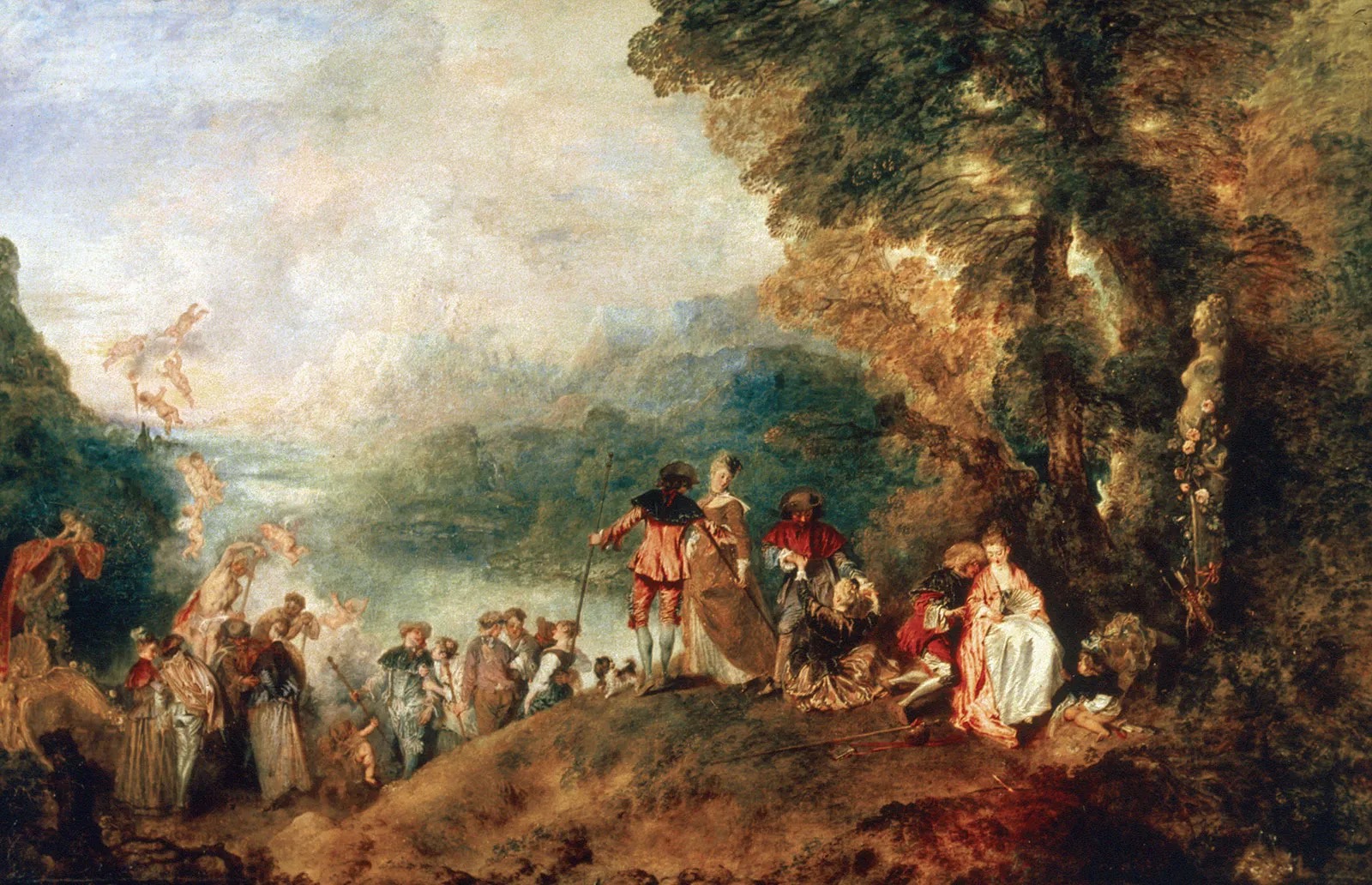
Pilgrimage to the Island of Cythera Rococo
Jean-Antoine Watteau-high class visiting the island of Venus, shows various stages of relationships
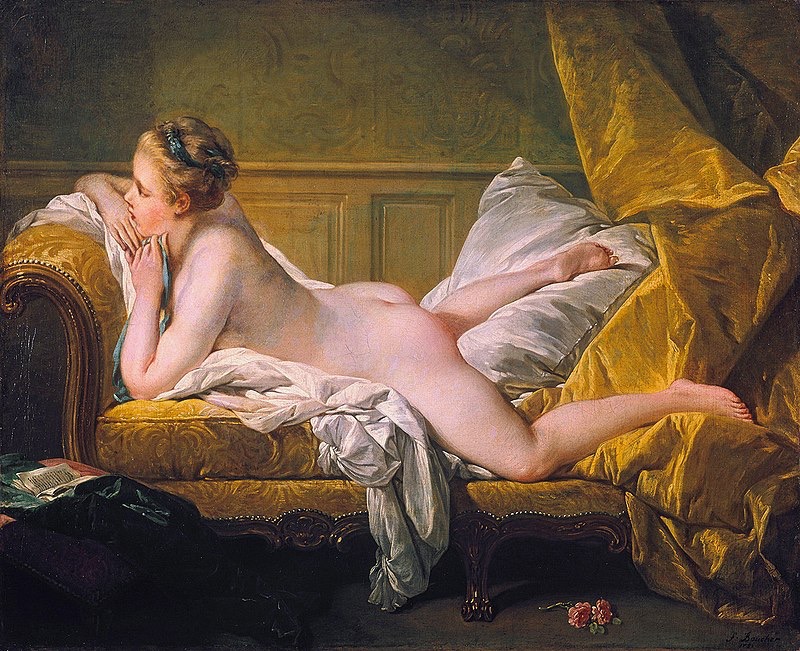
Girl Reclining Louise O Murphy Rococo
Francois Boucher- intimate and sexual, for king louis- his mistress
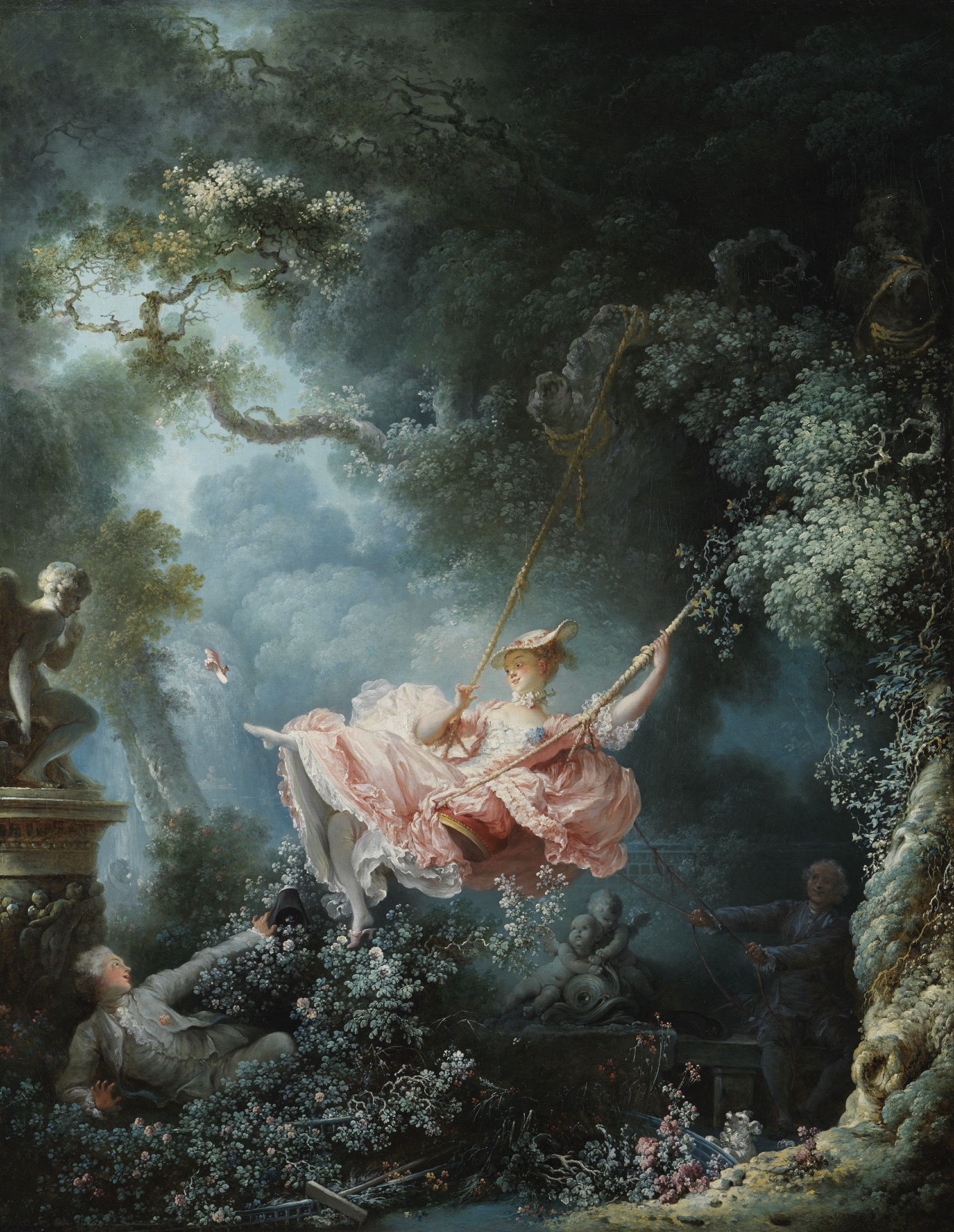
The Swing Rococo
Jean Honore Fragonard- cupid, dolphin, infidelity
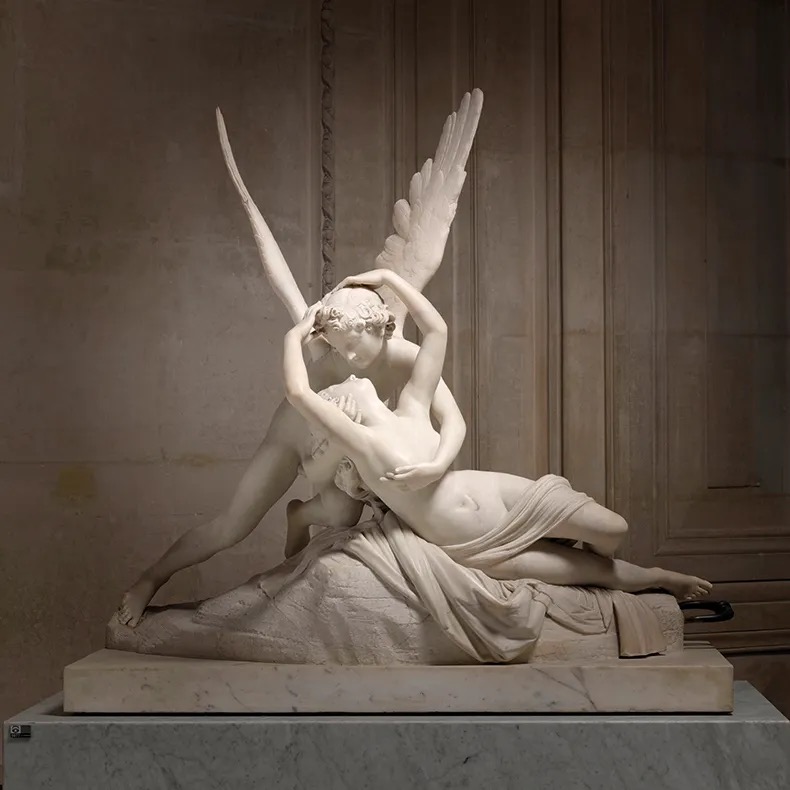
Psyche Revived by Cupid’s Kiss Neoclassicism
Antonio Canova- x composistion
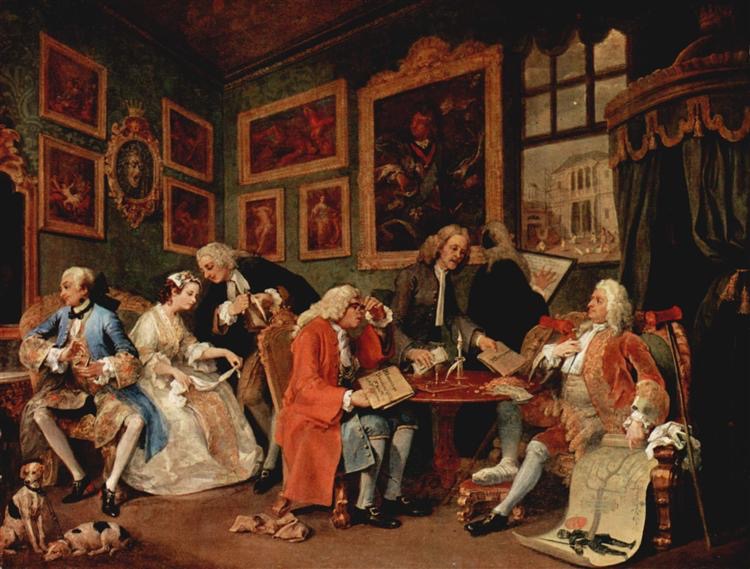
The Marriage Contract Neoclassicism
William Hogarth- politics of marriage- no money vs money, bride does not want to marry the groom
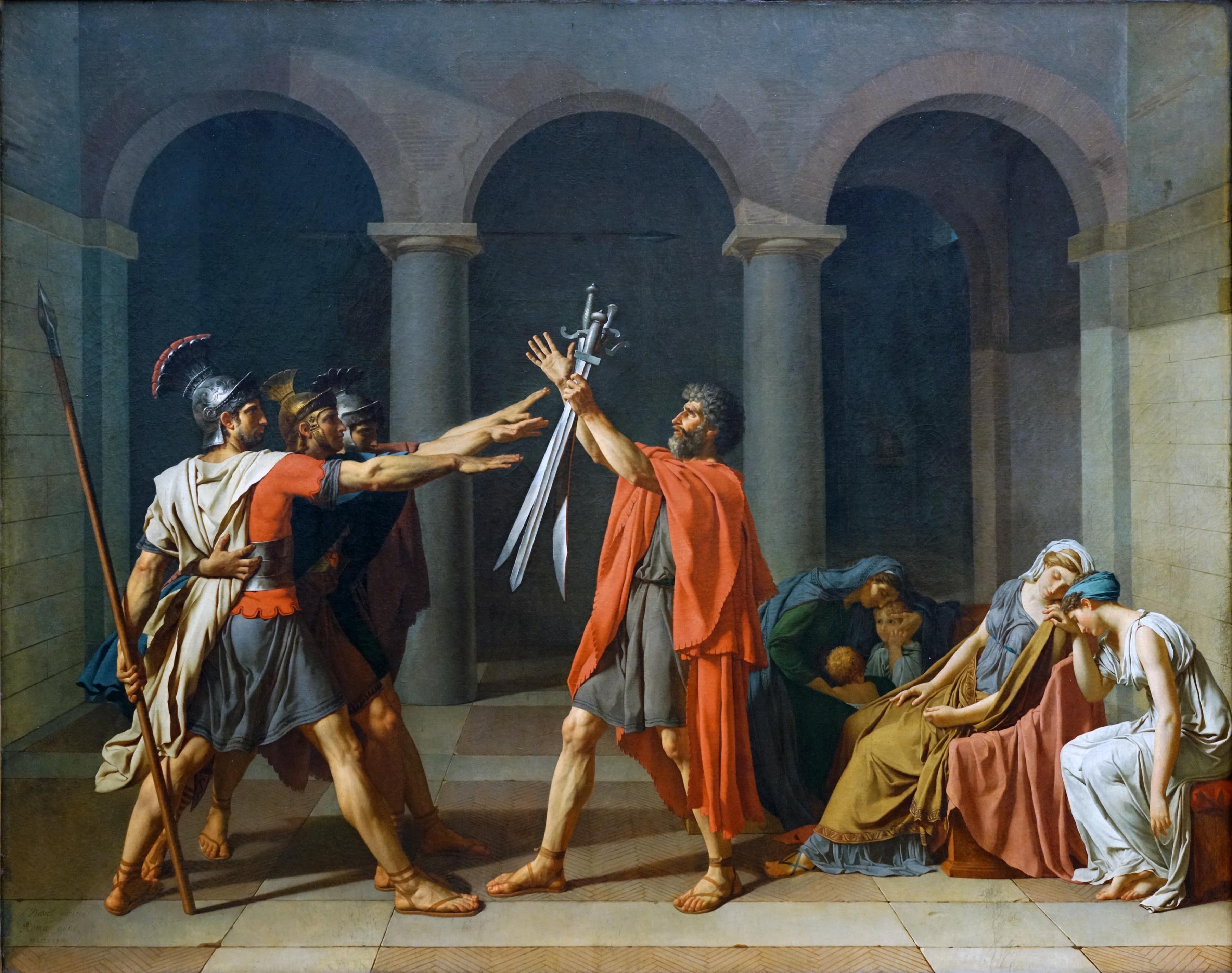
The Oath of Horatii Neoclassicism
Jacques-Louis David- Horatii bros swear allegiance to father to fight against curatti family,
18th and 19th century
rural to urban, women’s rights, scientific discoveries, technology and medicine, France is major artistic center
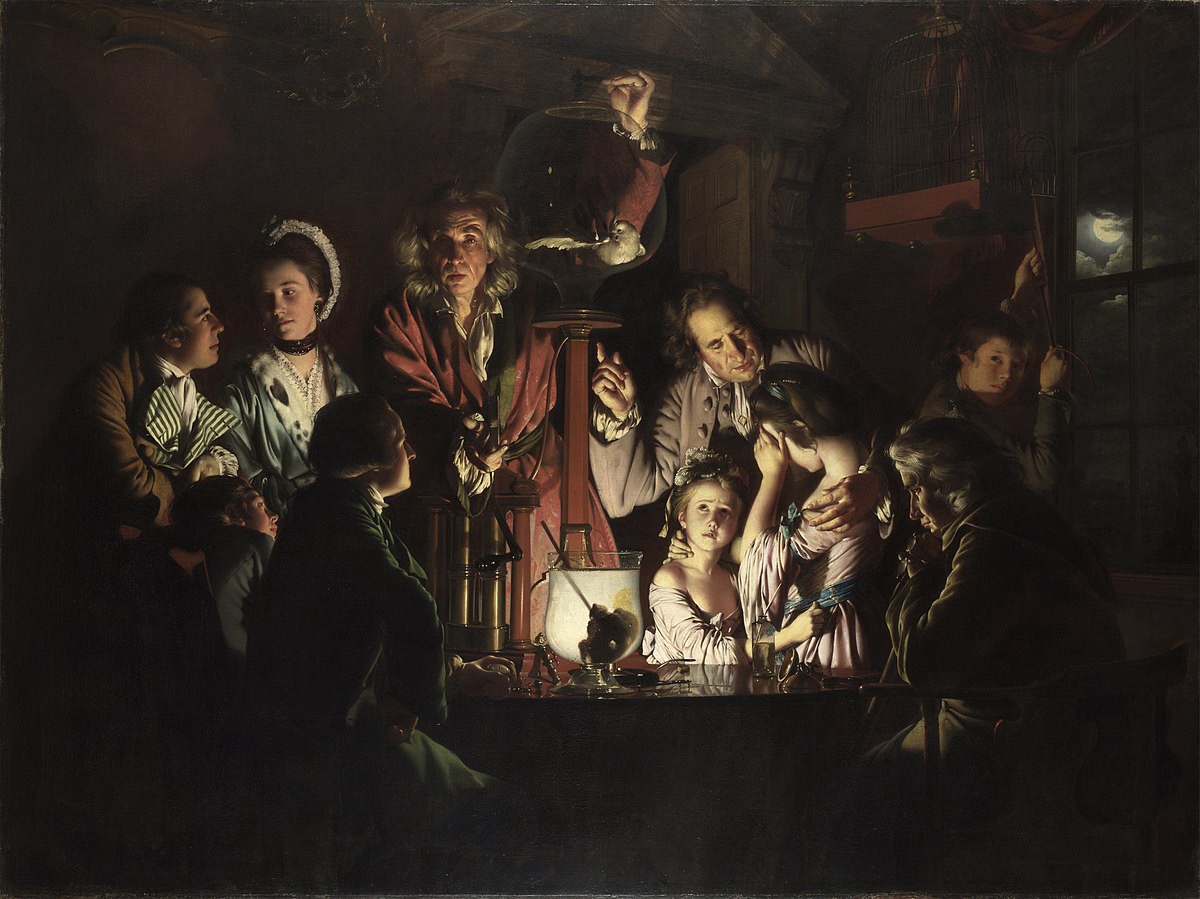
An Experiment on a Bird in an Air Pump Romanticism
Joseph Wright- celebrates science and technology, depicts the lunar group
Lunar Group
traveling group attempting to popularize science
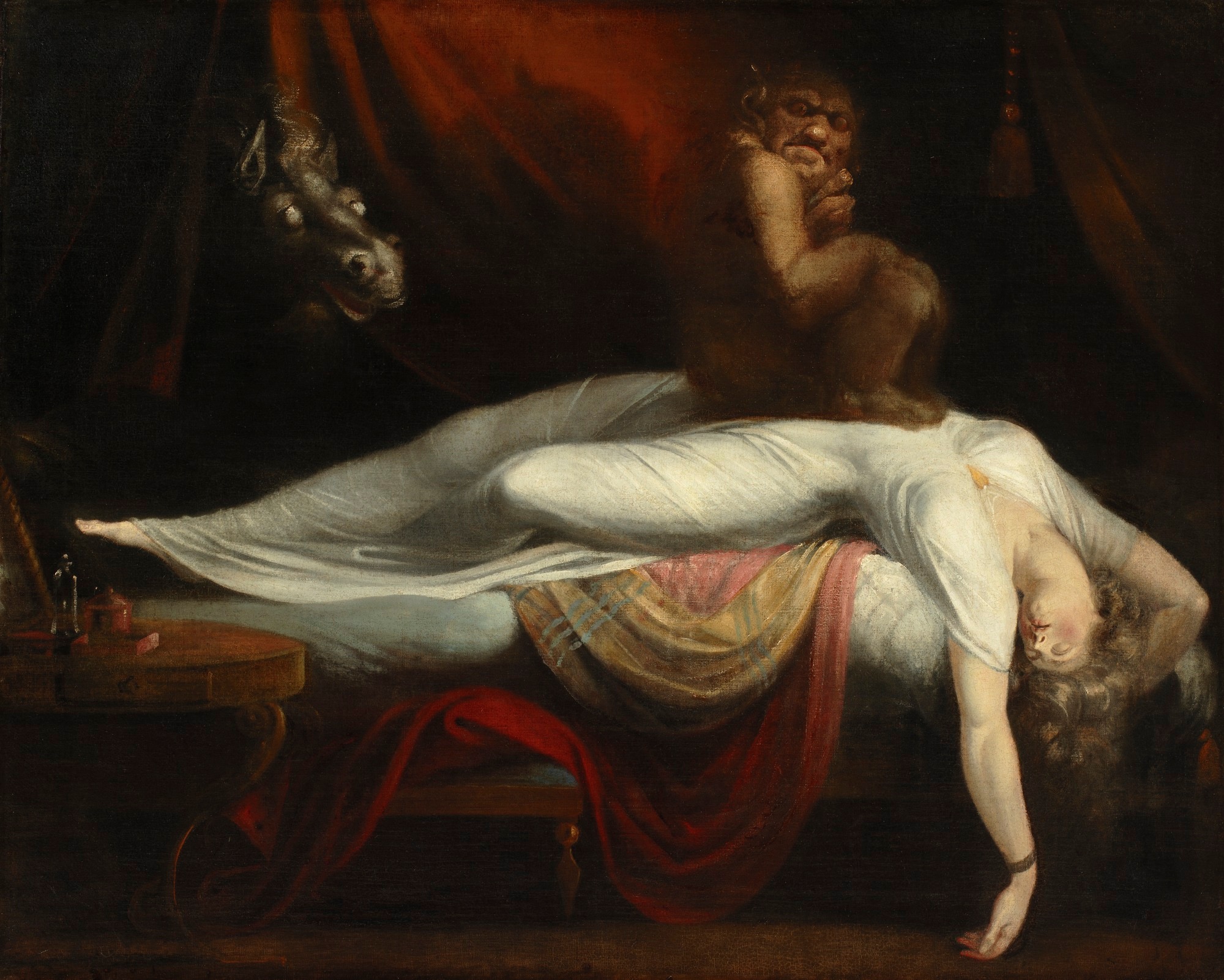
The Nightmare Romanticism
John Henry Fuseli- increased interest in how the mind works, incubus, unbridled sexuality-horses
incubus
evil spirit
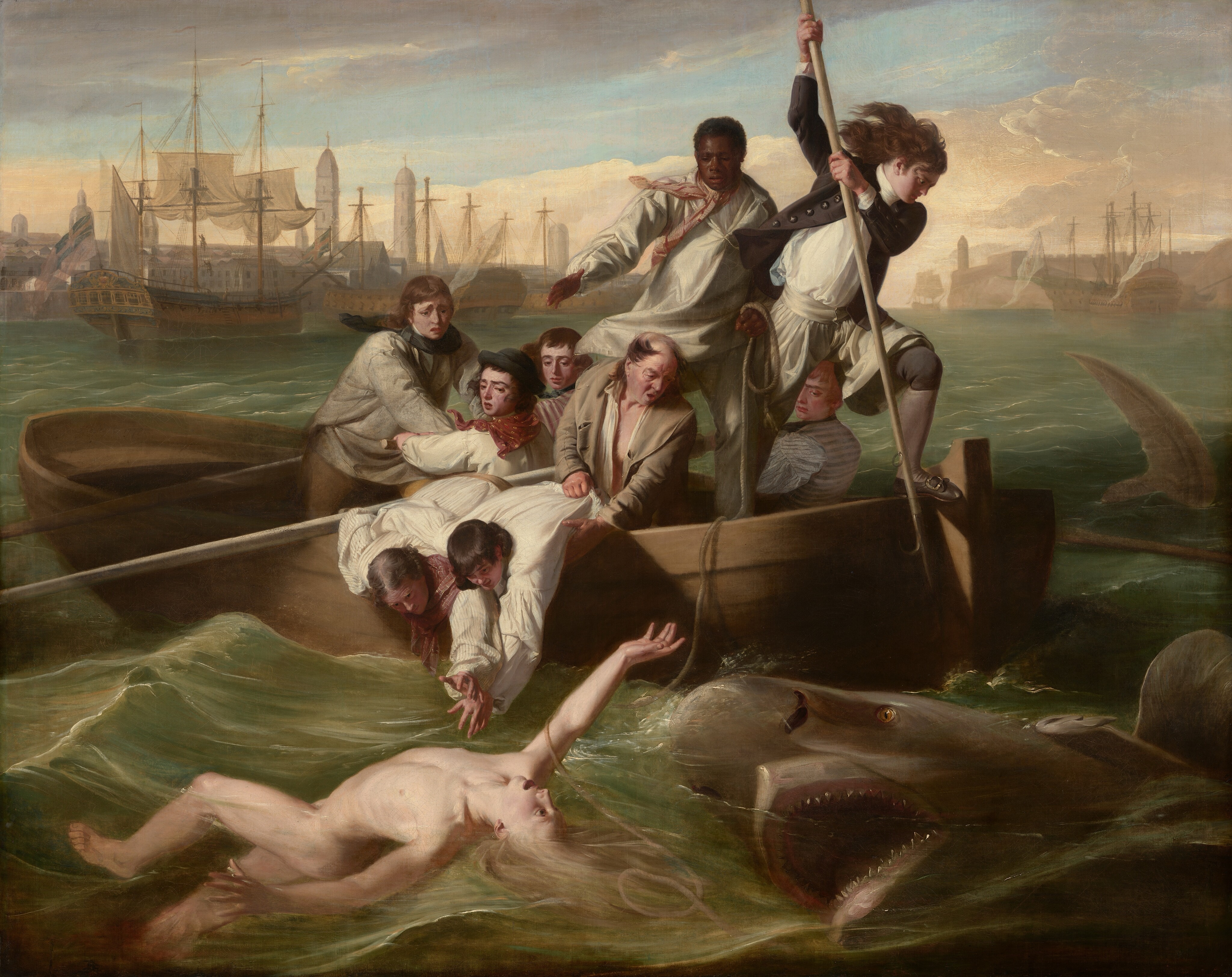
Watson and the Shark Romanticism
John Singleton Copely- based on a true story- exaggerated and emotional- politically motivated -black sailor
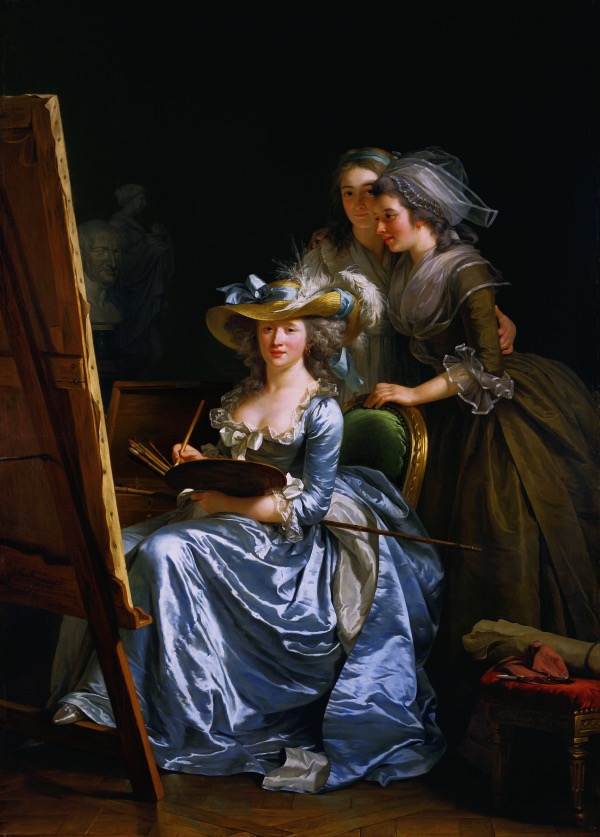
Self Portrait with Two Pupils Romanticism
Adélaï de Labille-Guiard- Painting done in response that her paintings must have been done by men, only male presence is the bust of her father
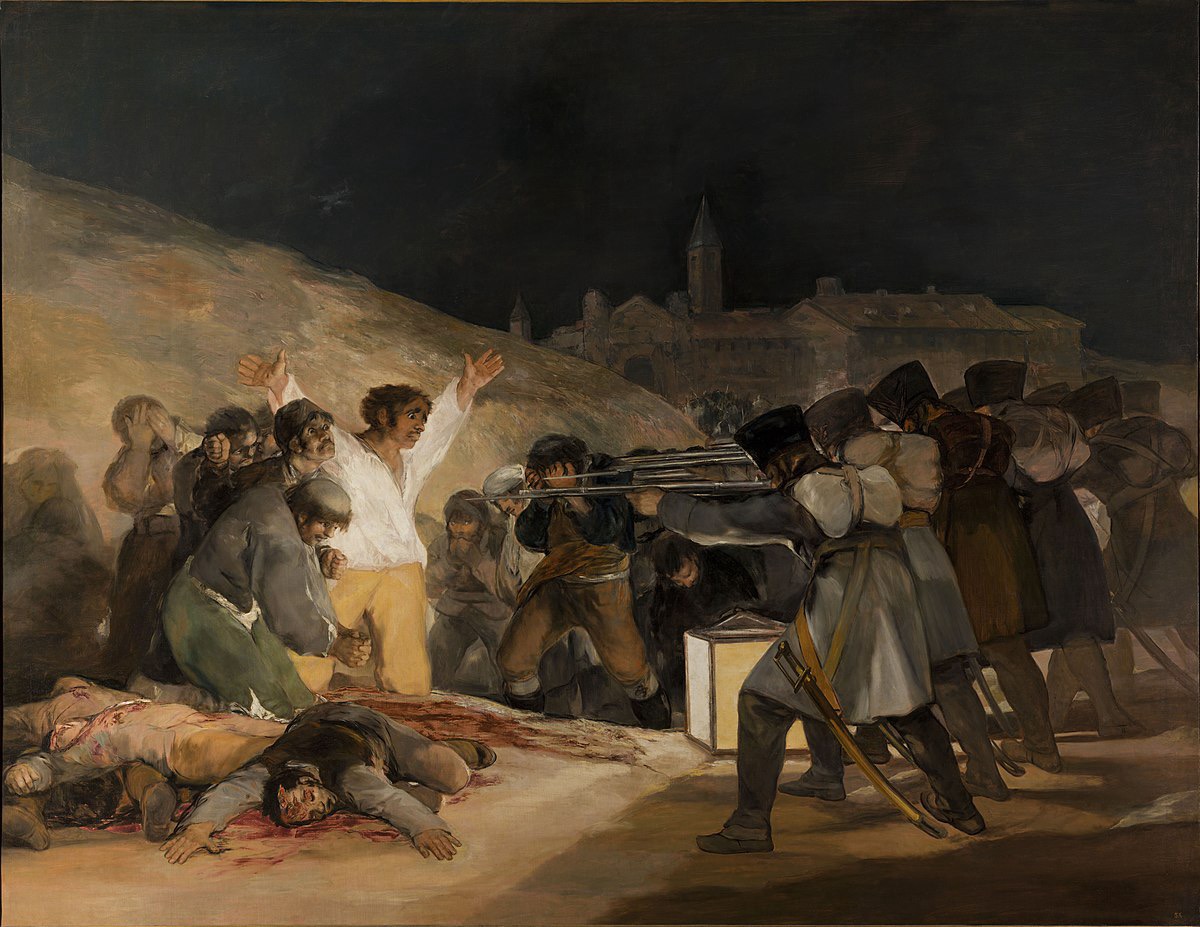
Third of May, 1808 Romanticism
Francisco Goya- Napoleons invasion of Spain, fights, riots and violence. painted in reponse
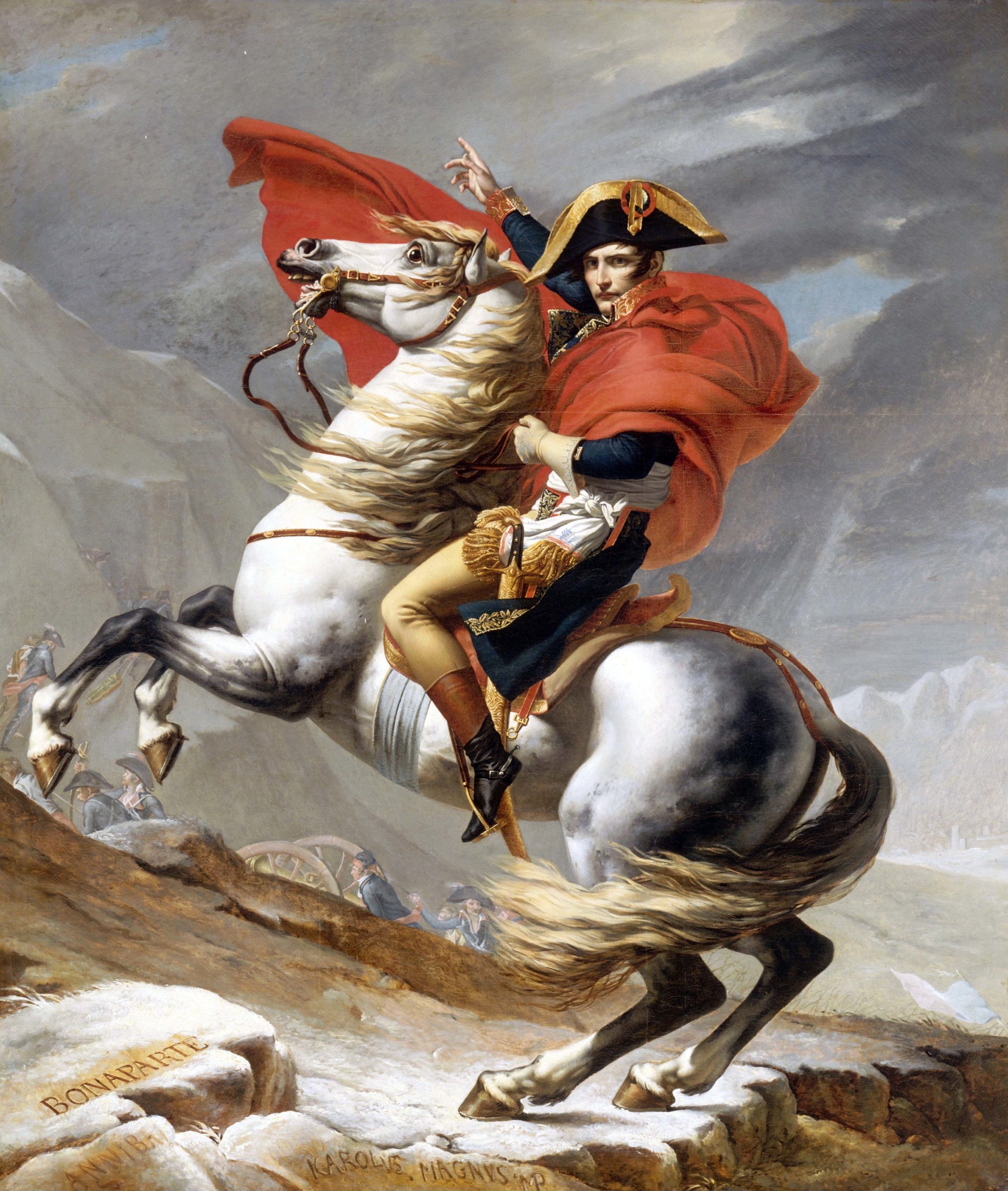
Napoleon Crossing the Alps Romanticism
Jacques-Louis David- propagada, imaginary scene, exageratted and idealized.
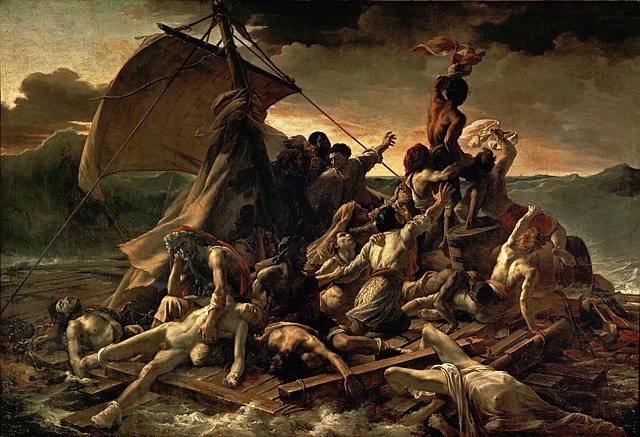
Raft of the Medusa Romanticism
Theodore Gericault - true story but exaggerated, complete loss of hope and death, pyramid composistion
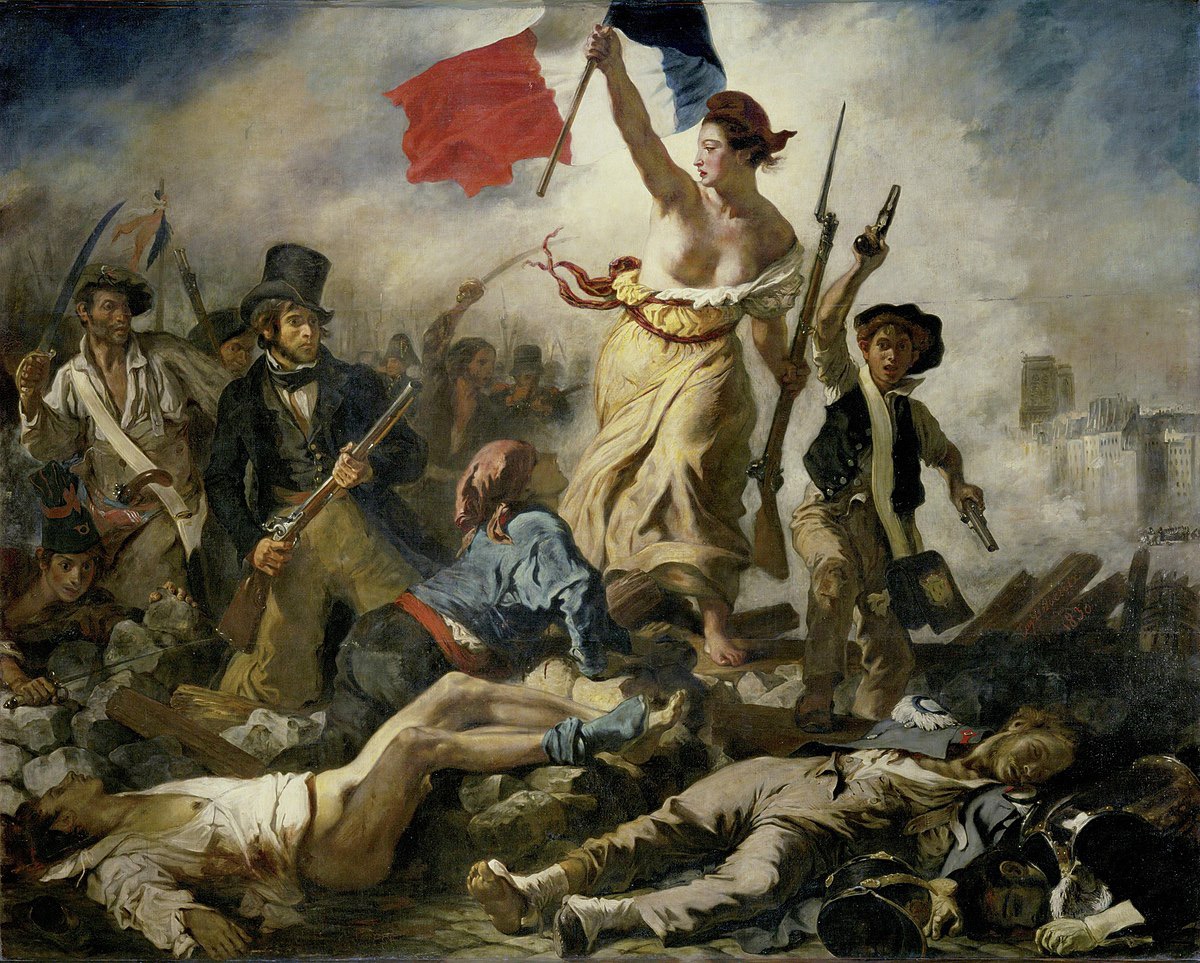
Liberty Leading the People Romanticism
Eugene Delacroix- Second French Revolution, emotions over accurcy, allegorical liberty, all people rallied in support of the democracy
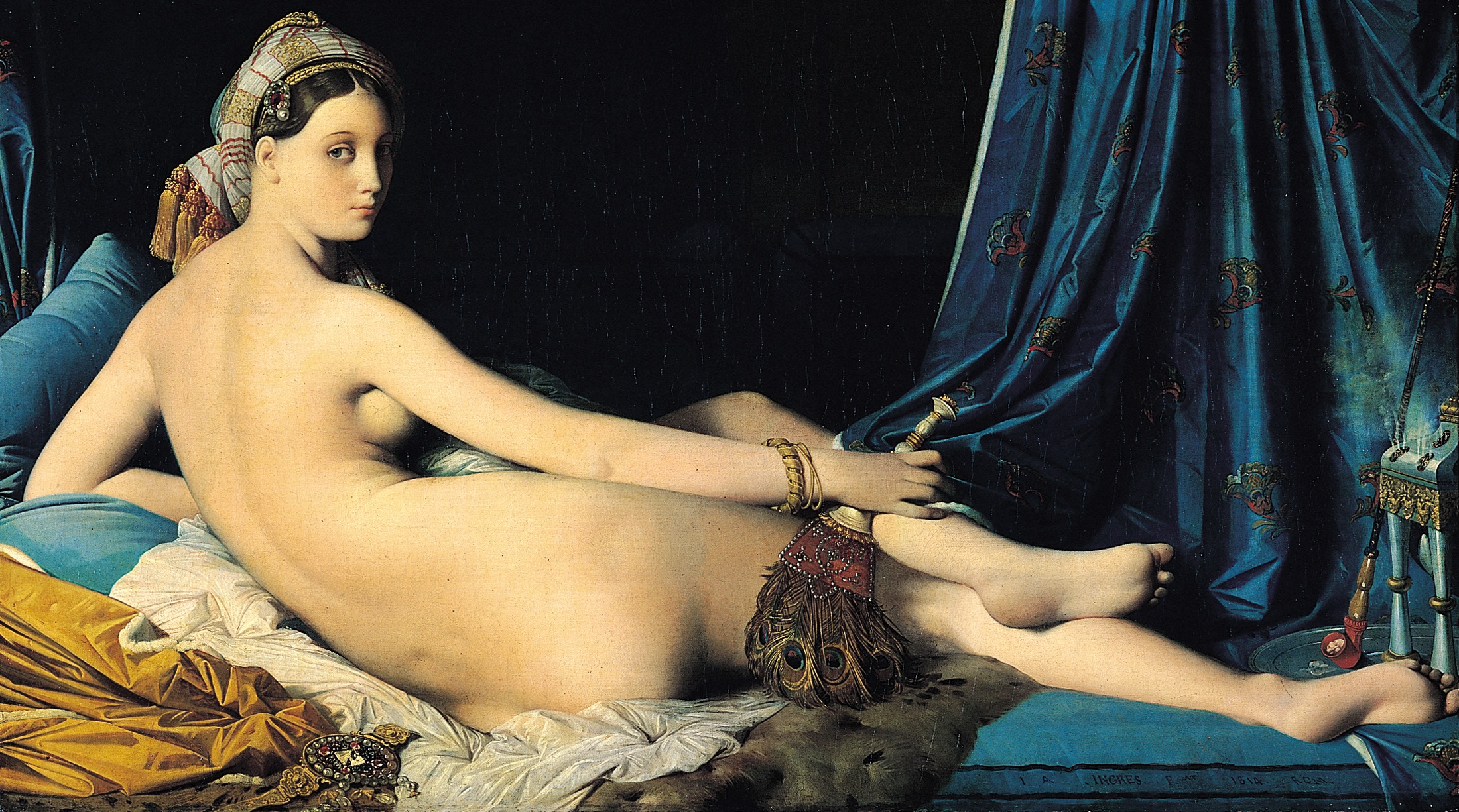
The Grand Odelisque Romanticism
Jean-Auguste-Dominique Ingres- female slave, and concubine, surrounded by gifts from her clients
Romantic landscapes
reflect humanity, everchanging, unpredictable and uncontrollable
sublime
a quality of greatness that inspires awe and wonder; and sometimes fear
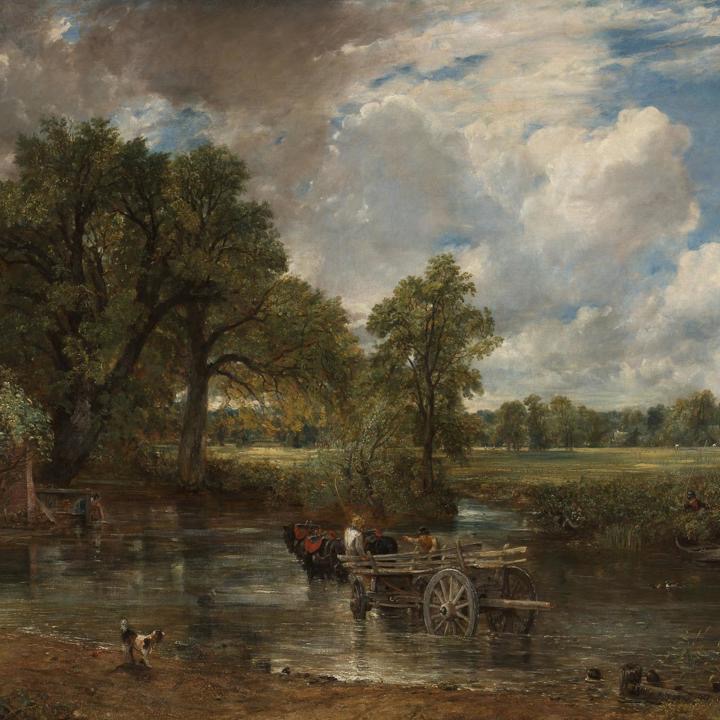
The Hay Wain Romanticism
John Constable- very little human presence, nature is in control
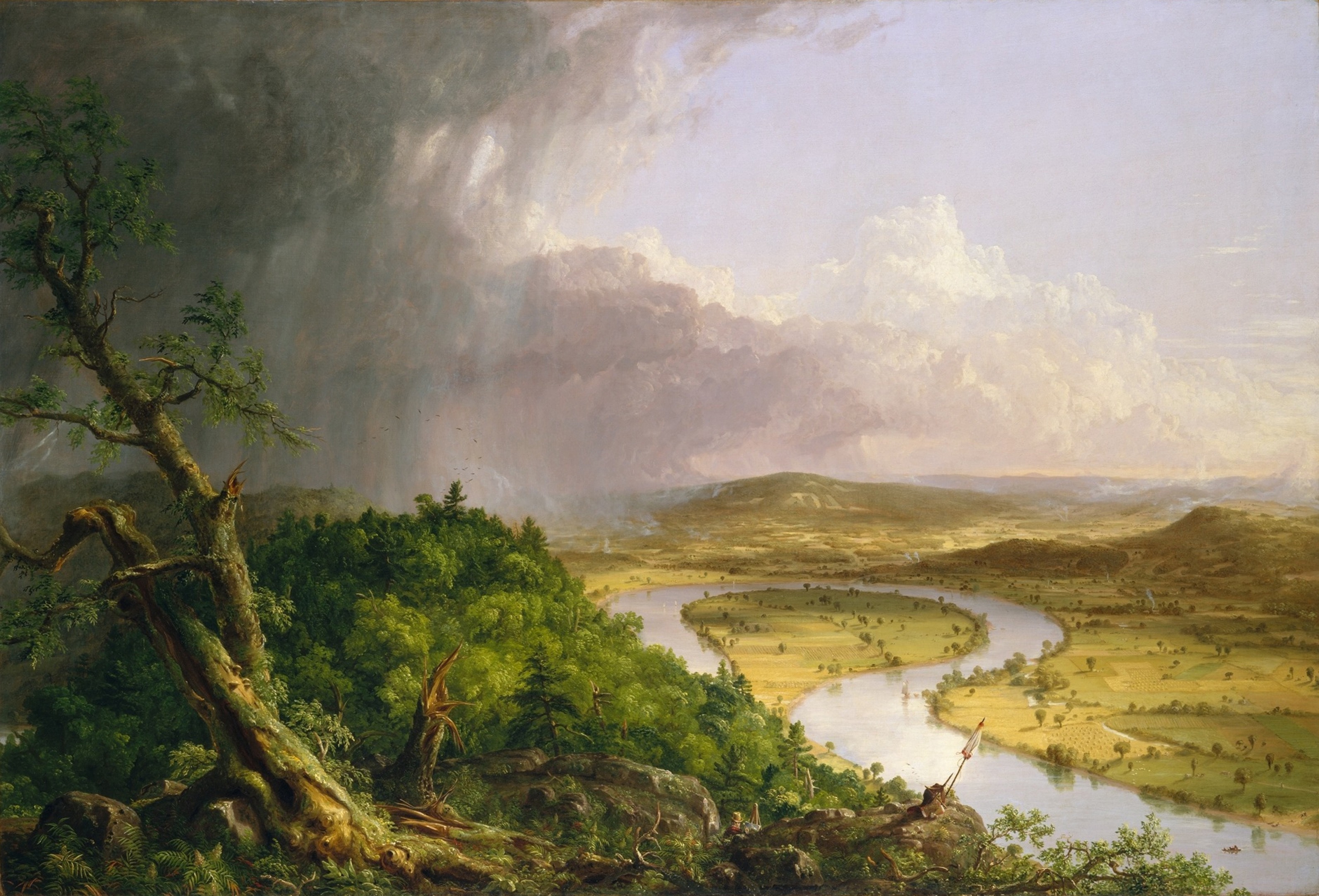
The Oxbow Romanticism
Thomas Cole- sublime, unsettled land
Realism
depicts the world honestly, portrayed the lower class and the humble, presenting the working class caused a violent reaction
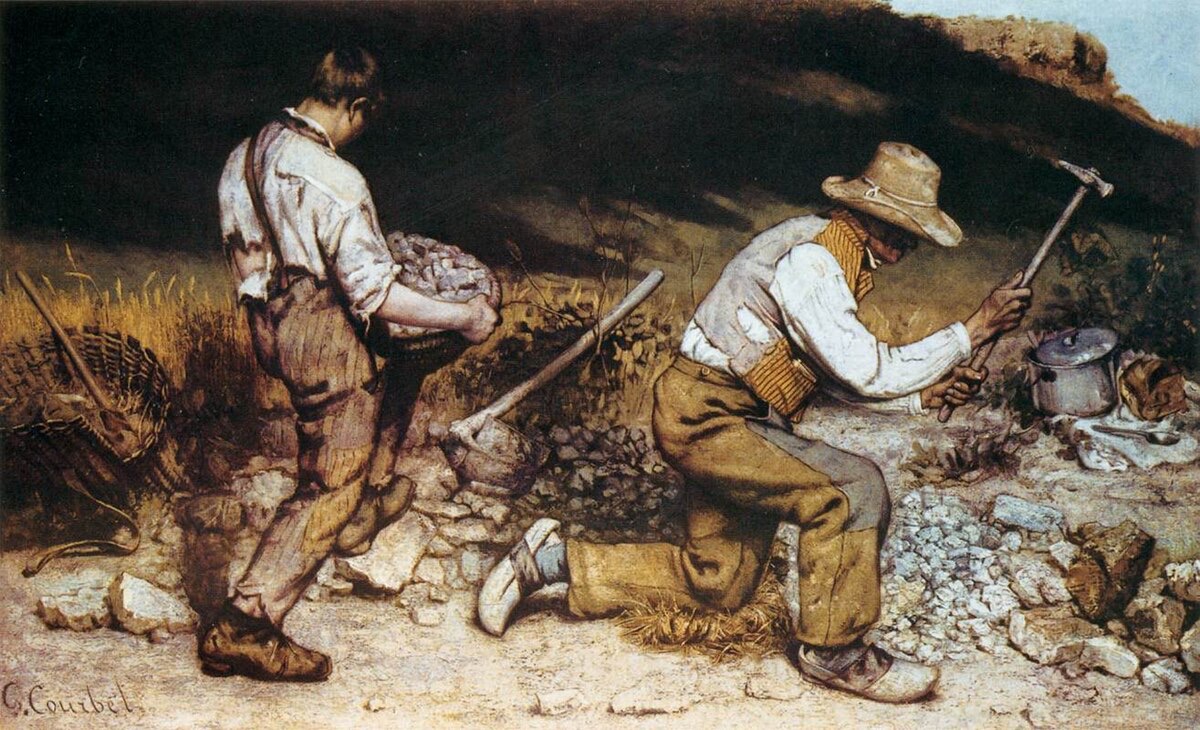
The Stone Breakers Realism
Gustave Courbet- Generational poverty, epic sized
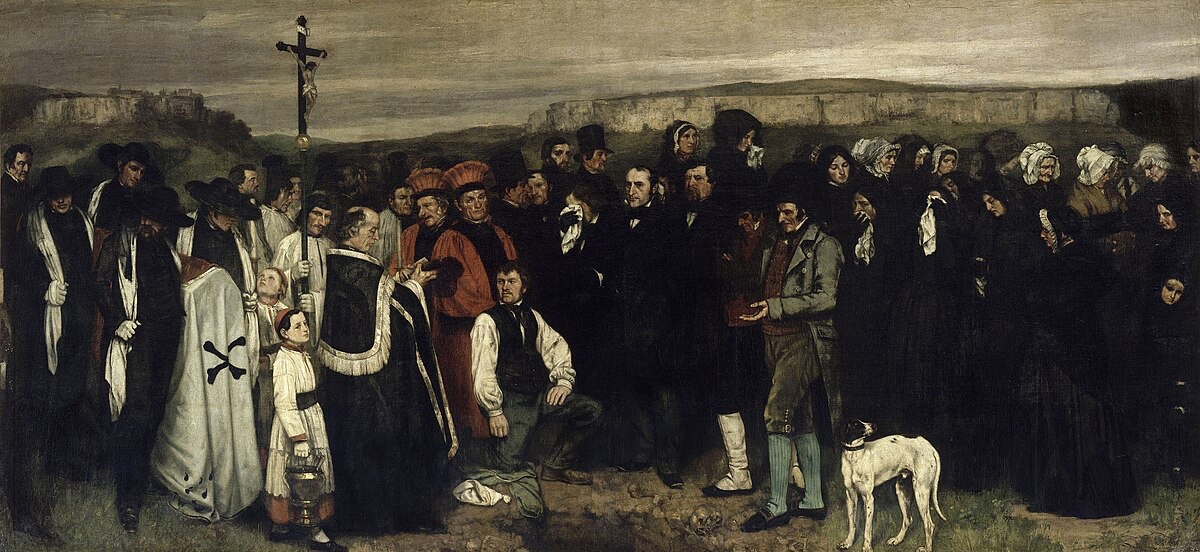
The burial at Ornans Realism
Gustave Courbet- authentic mourners, church is indifferent
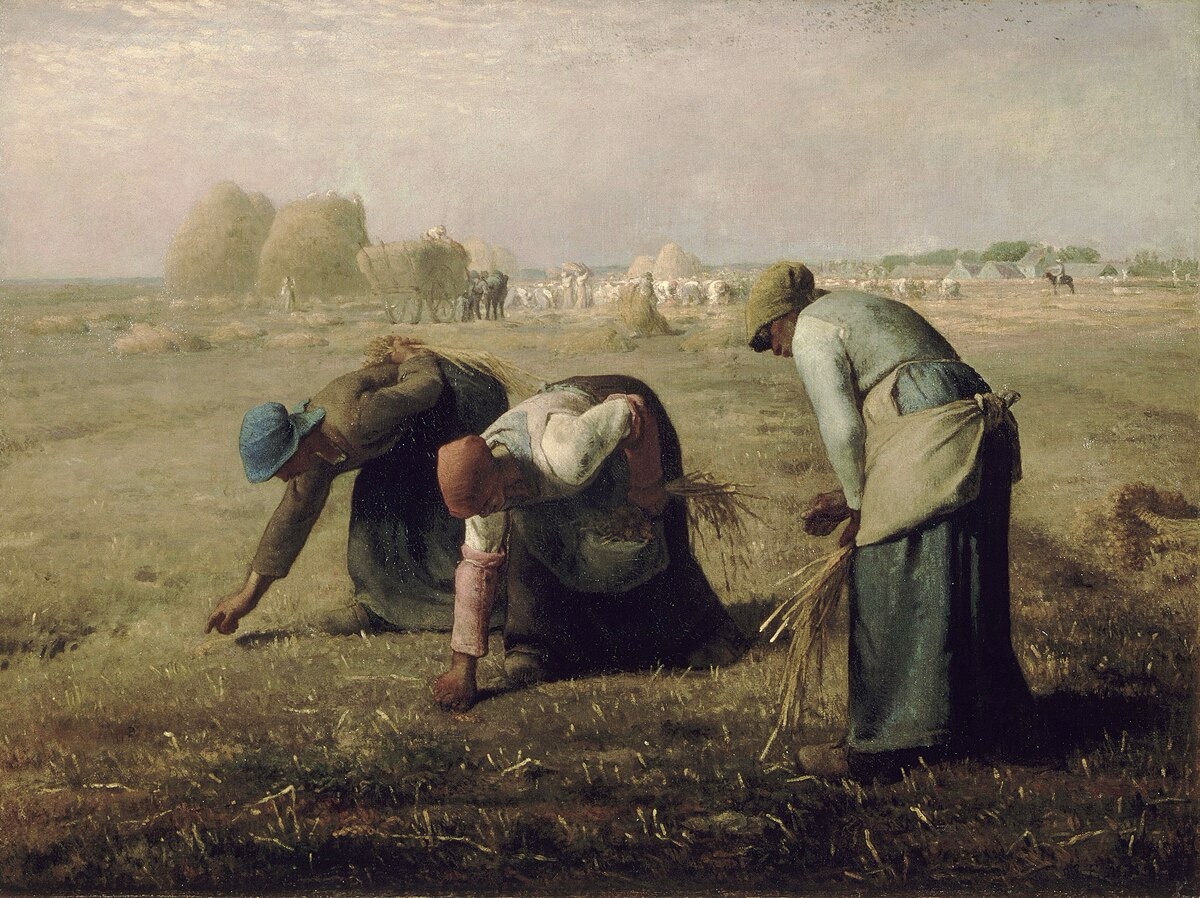
The Gleaners Realism
Jean-François Millet - poor stuck in generational wealth
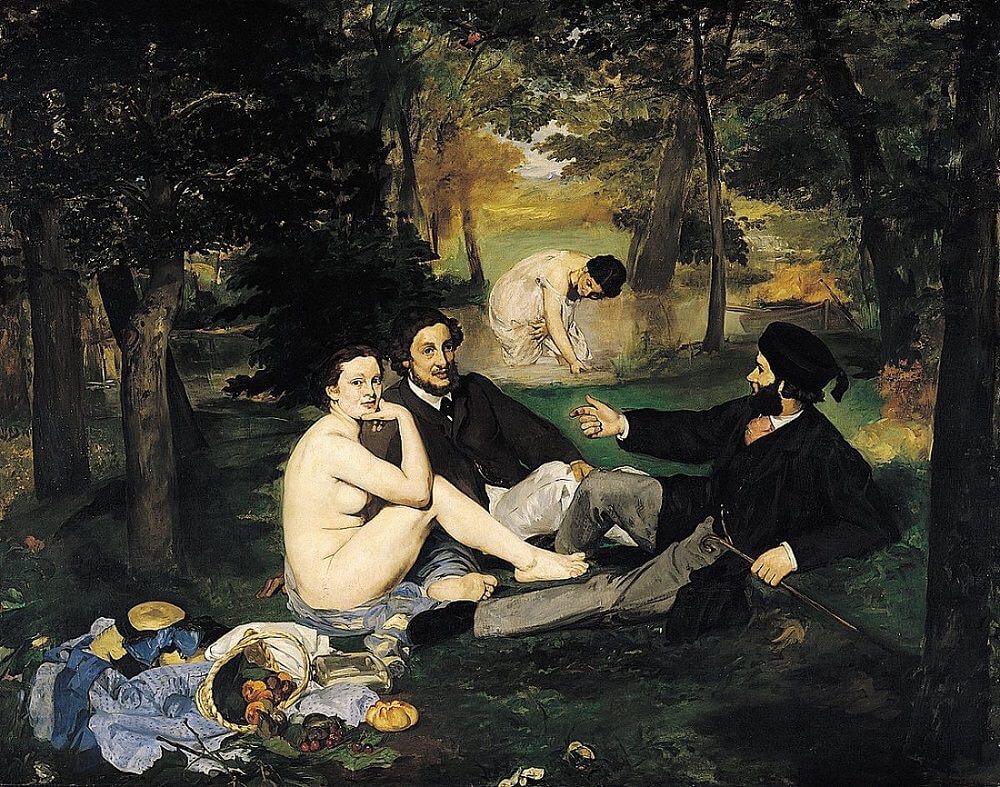
Luncheon on the Grass Realism
Edouard Manet- refused by the Salon, immoral, nude women, dressed men
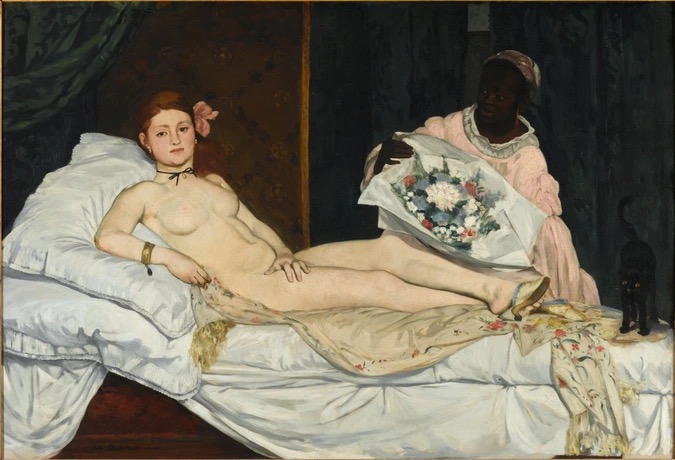
Olympia Realism
Edouard Manet- Reference to prositute in popular novel, codly indifferent
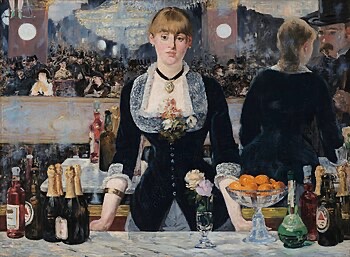
A Bar at the Folies-Bergere Realism
Edouard Manet- trapped in her job, girl at a Night club
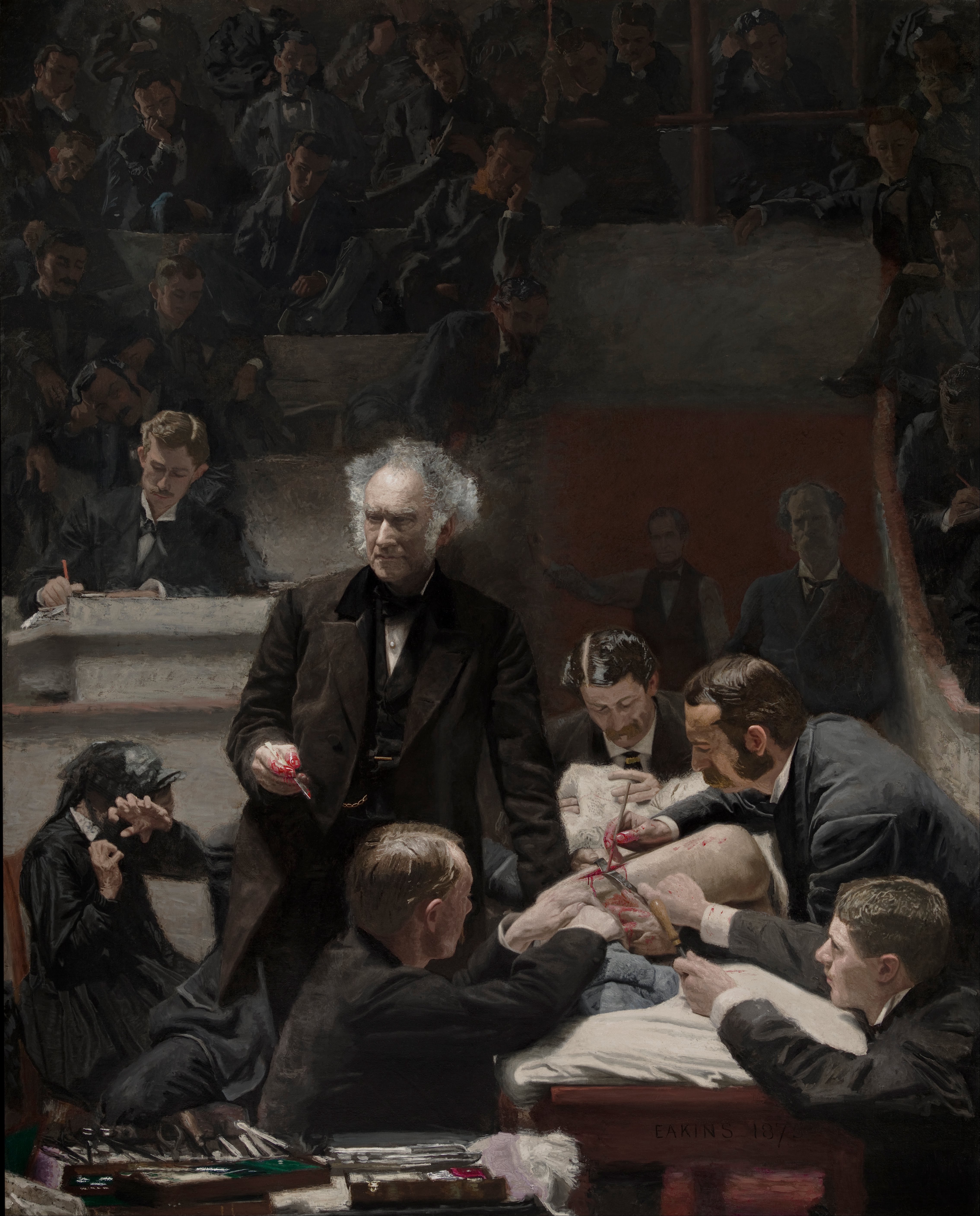
The Gross Clinic Realism
Thomas Eakins- gross is hero, surgery
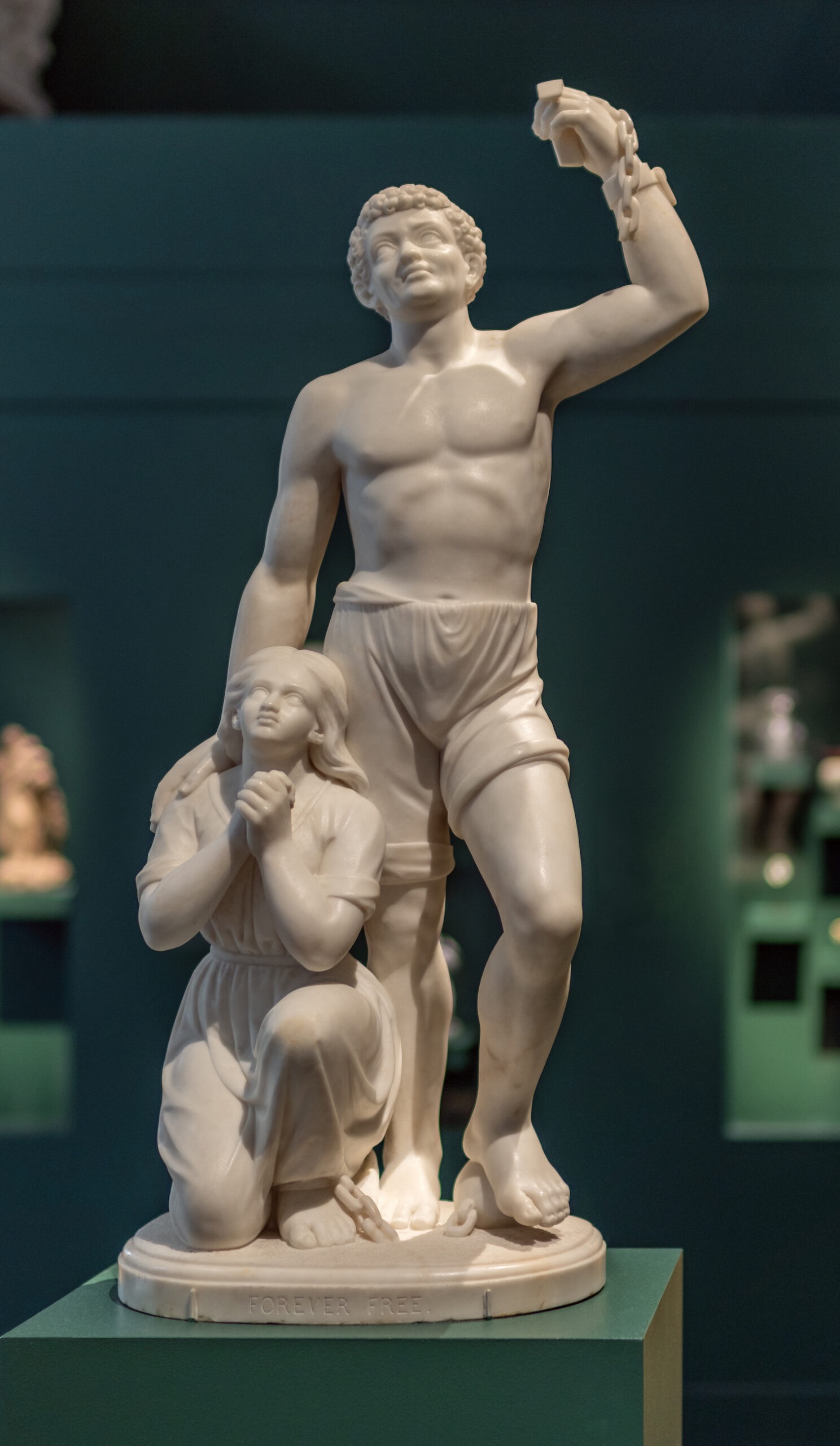
Forever Free Realism
Edmonia Lewis
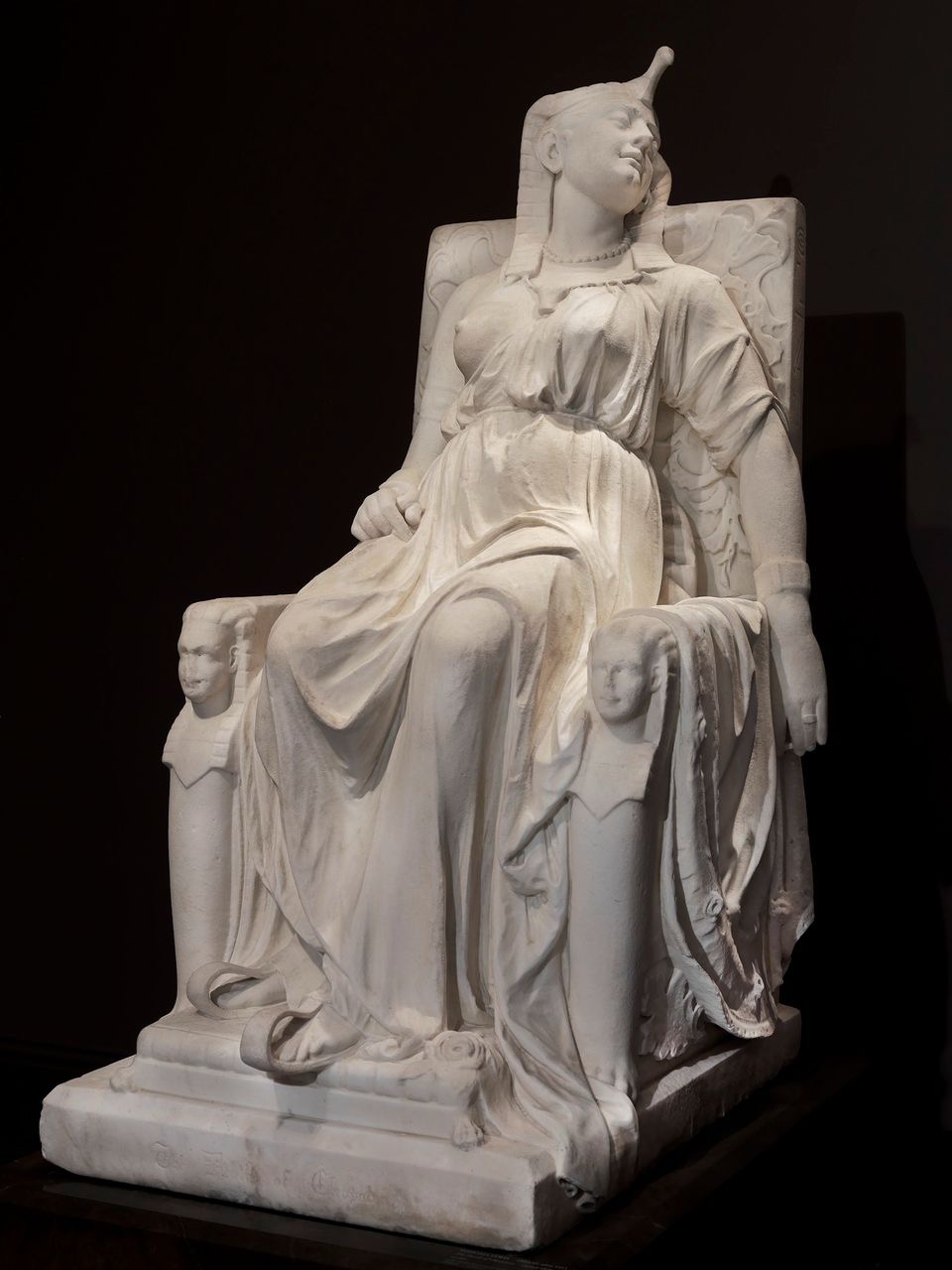
Death of Cleopatra Realism Neoclassic in style
Edmonia Lewis